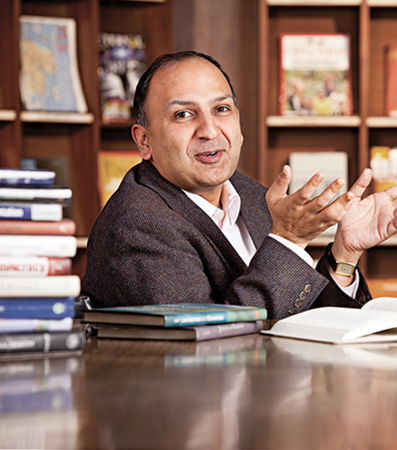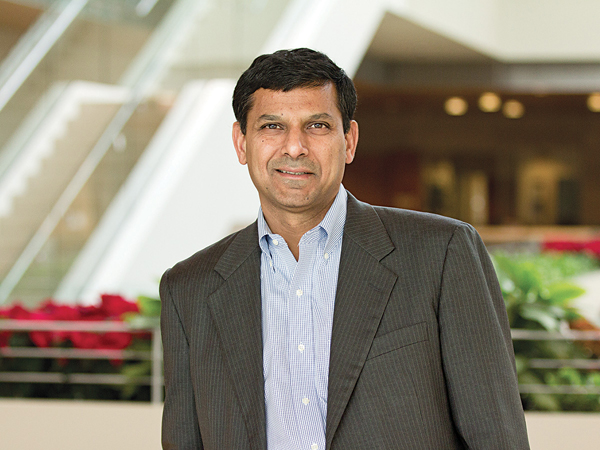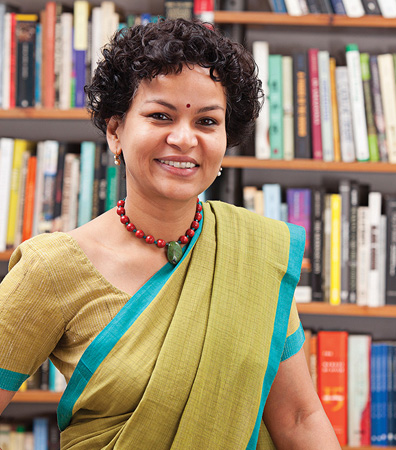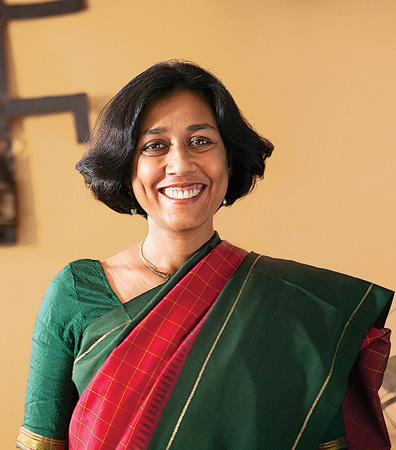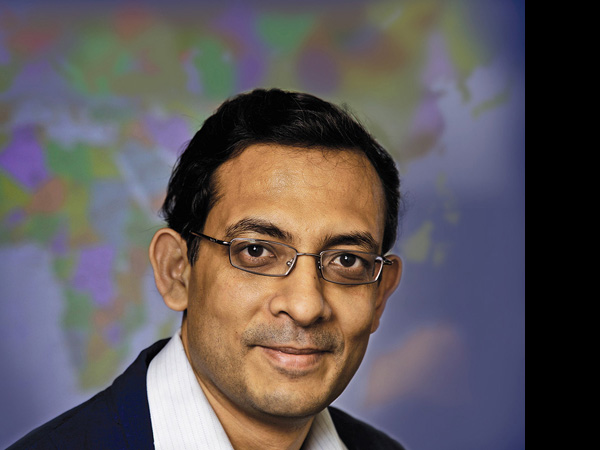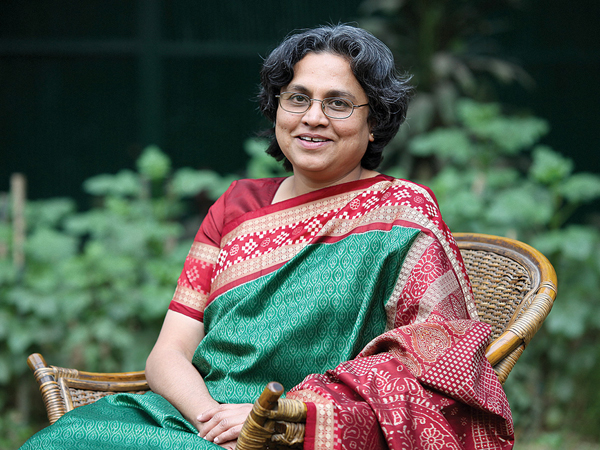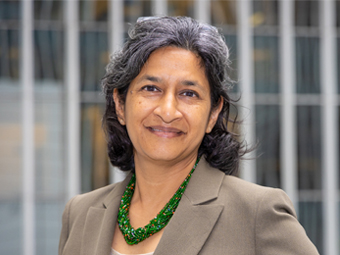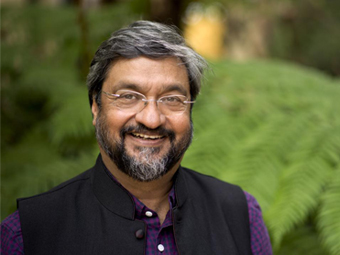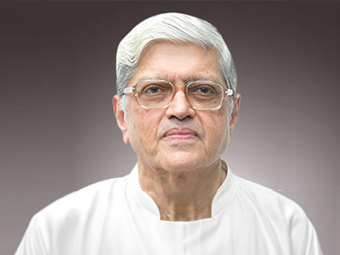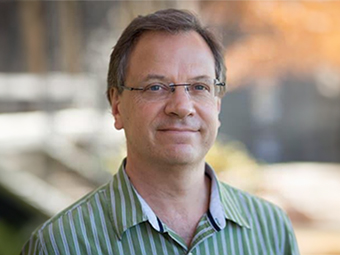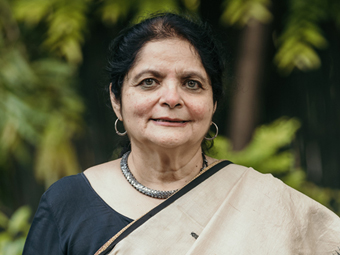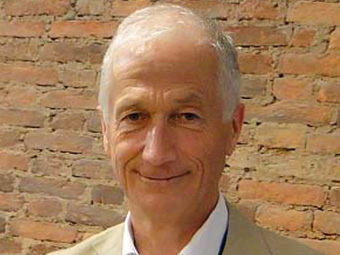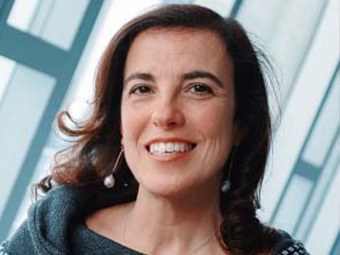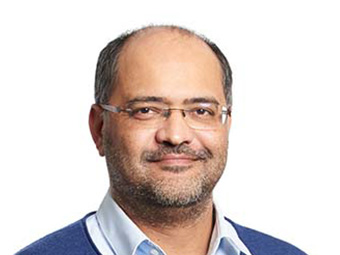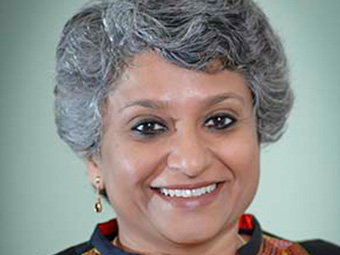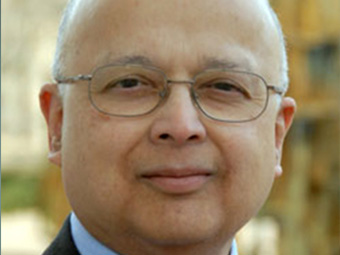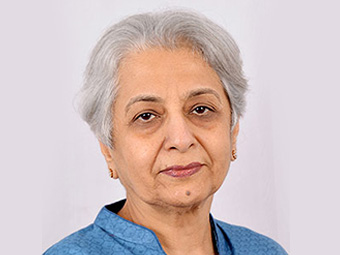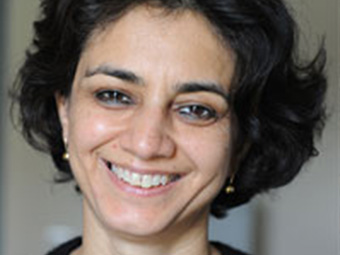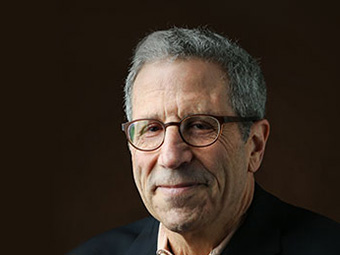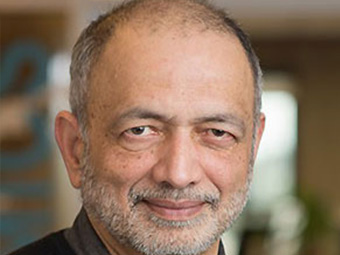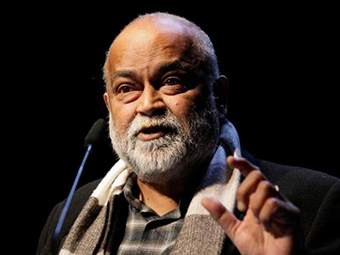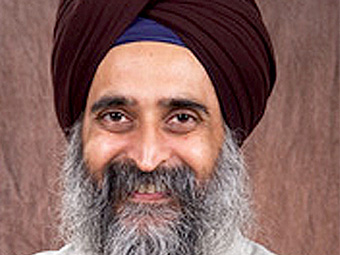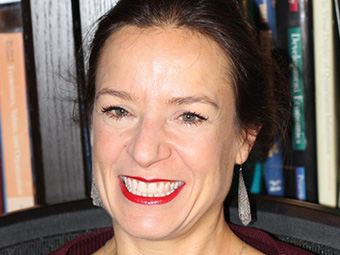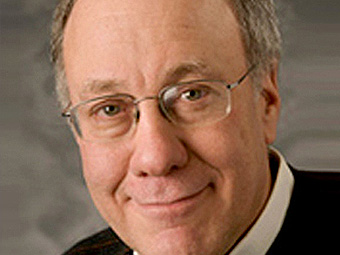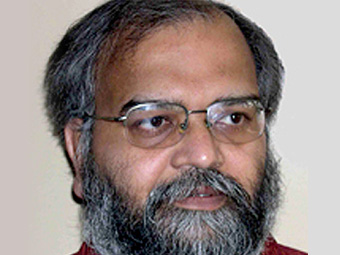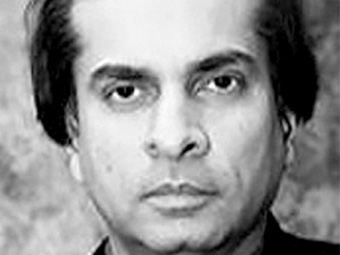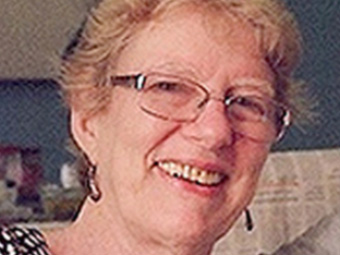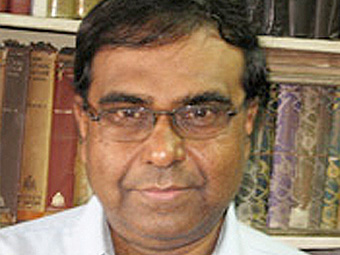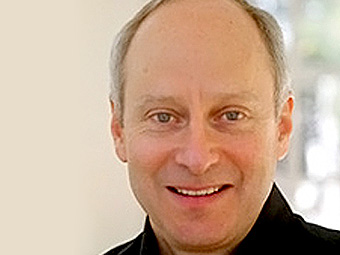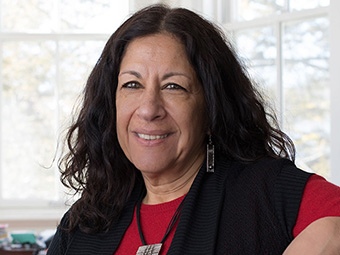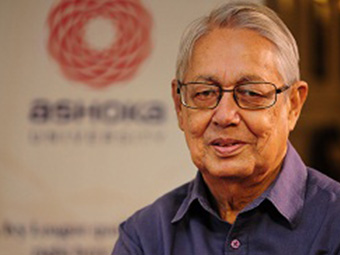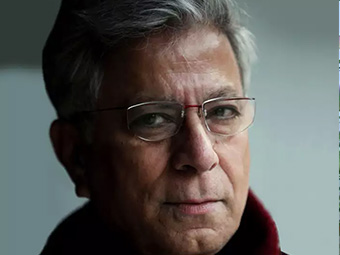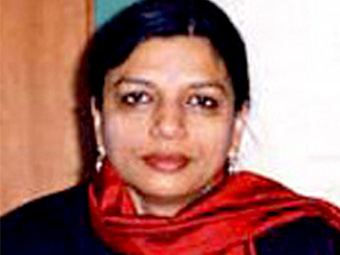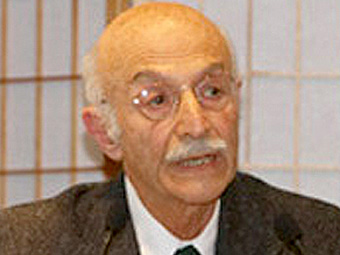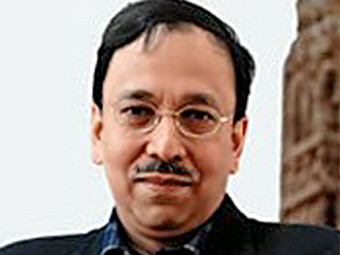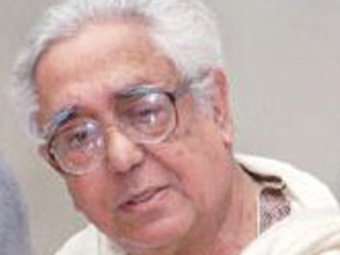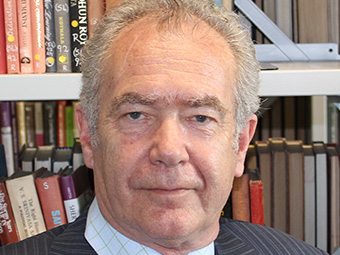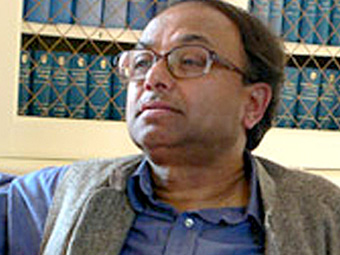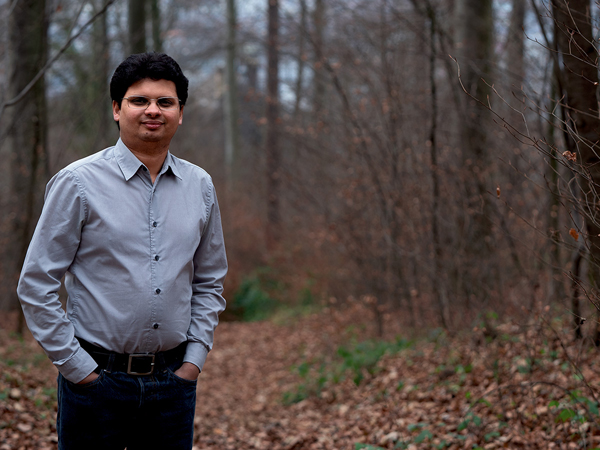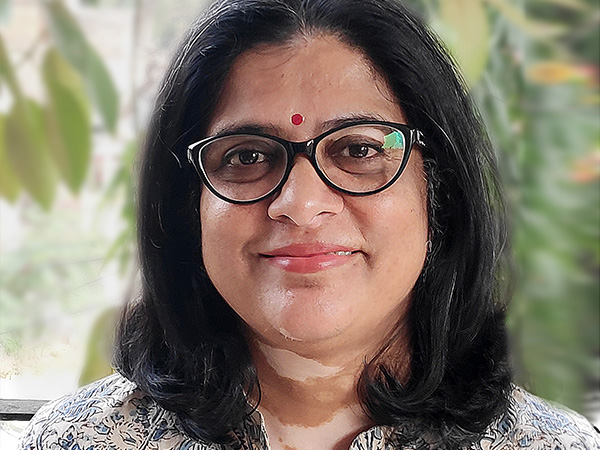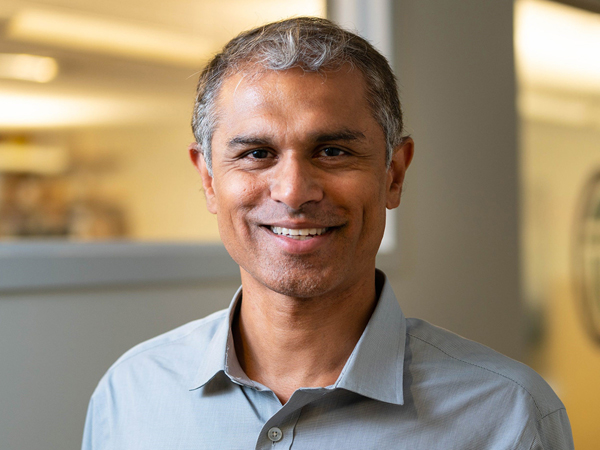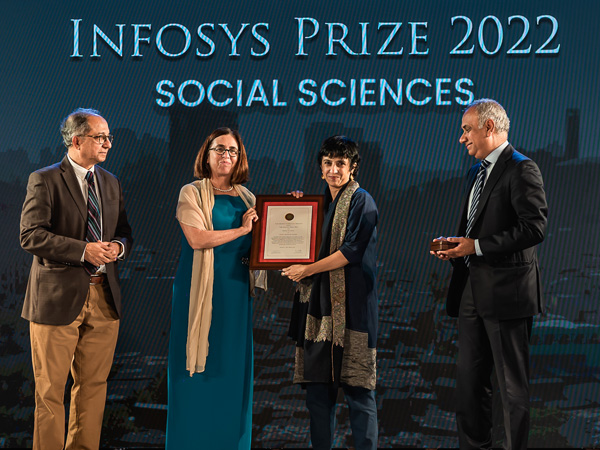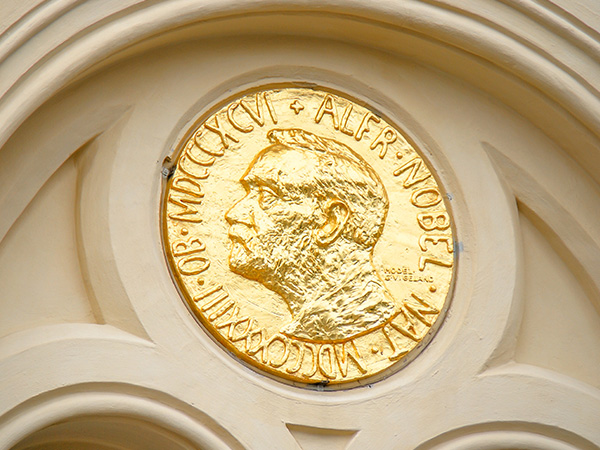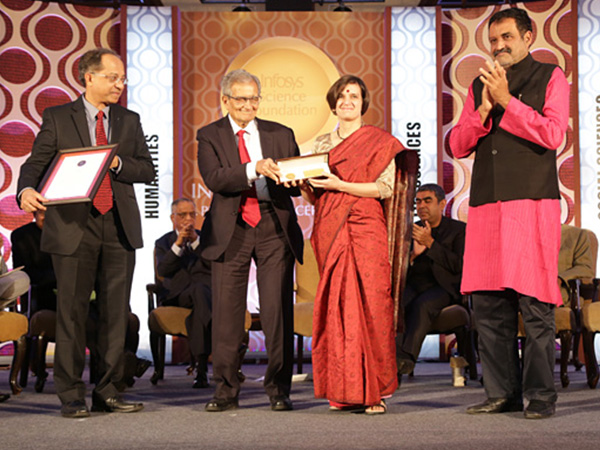
Economics
Economics is the study of scarcity and its implications for the use of resources, growth and production of goods and services, and other complex issues that are of vital concern to society. Today, economics research is incorporating tools such as machine learning. The Infosys Prize in Economics awards interdisciplinary work in behavioral economics, public finance, corporate governance, and policy design among others.
In 2024, Humanities and Social Sciences were combined into one category, and Economics is a separate category.
Laureates
Social Sciences 2023
Karuna Mantena
Professor, Political Science, Columbia University, USA and Co-Director, Conference for the Study of Political Thought
Read More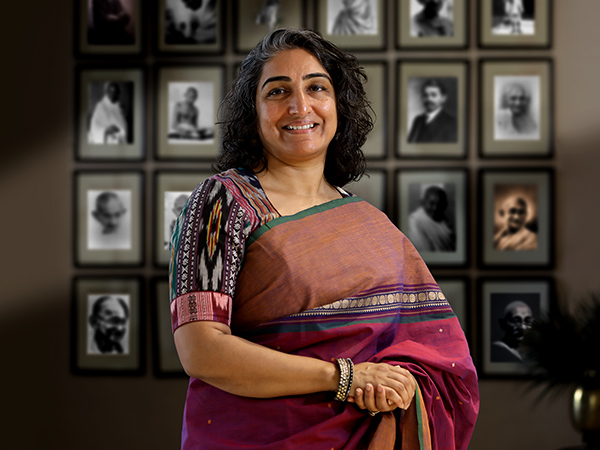
Social Sciences 2022
Rohini Pande
Henry J. Heinz II Professor of Economics and Director, Economic Growth Center, Yale University
Read More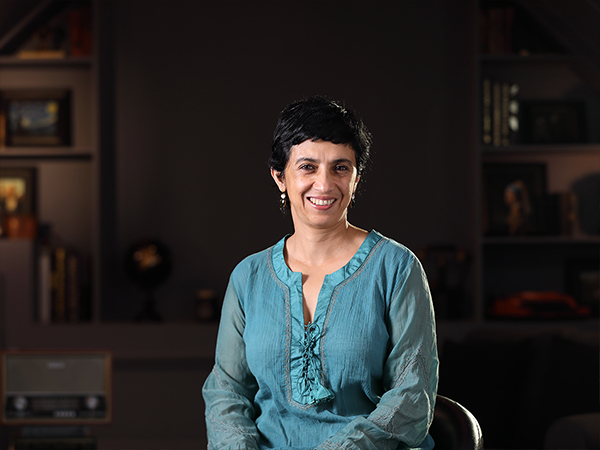
Social Sciences 2021
Pratiksha Baxi
Associate Professor, Center for the Study of Law and Governance, Jawaharlal Nehru University, New Delhi, India
Read More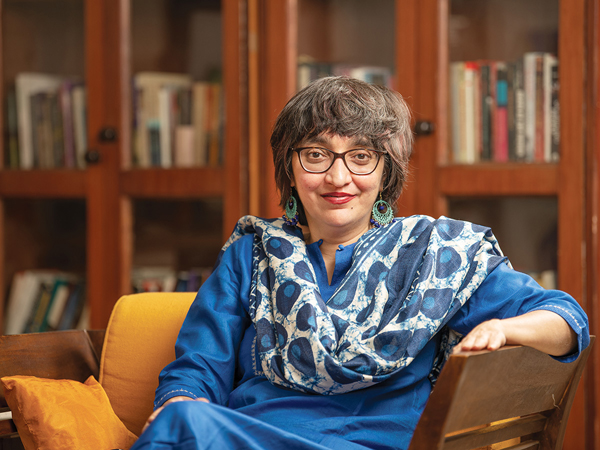
Social Sciences 2020
Raj Chetty
William A. Ackman Professor of Economics, Harvard University and Director of Opportunity Insights, US
Read More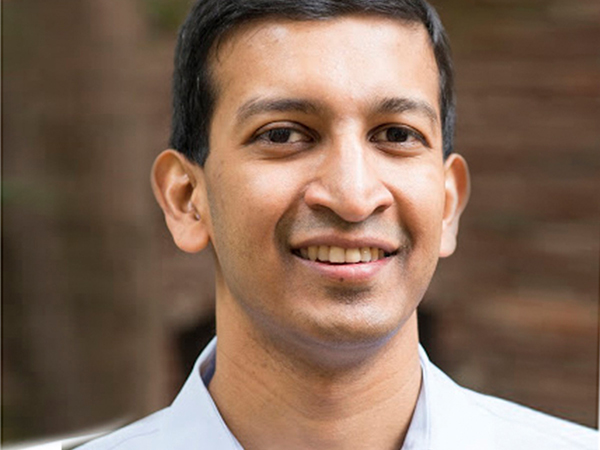
Social Sciences 2019
Anand Pandian
Professor, Department of Anthropology, Krieger School of Arts & Sciences, Johns Hopkins University
Read More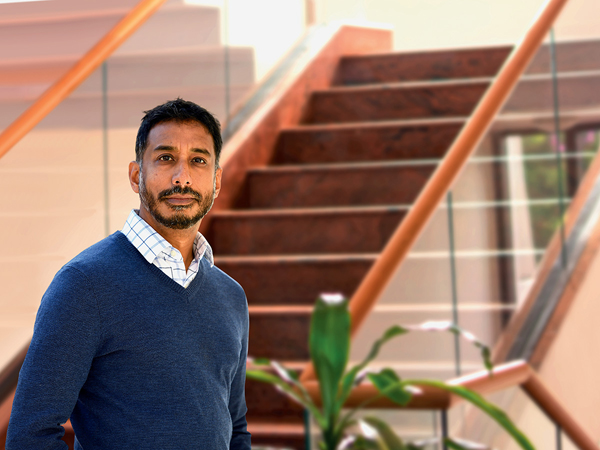
Social Sciences 2018
Sendhil Mullainathan
University Professor, Professor of Computation and Behavioral Science, and George C. Tiao Faculty Fellow, The University of Chicago Booth School of Business
Read More
Social Sciences 2017
Lawrence Liang
Professor, School of Law, Governance and Citizenship, Ambedkar University, Delhi
Read More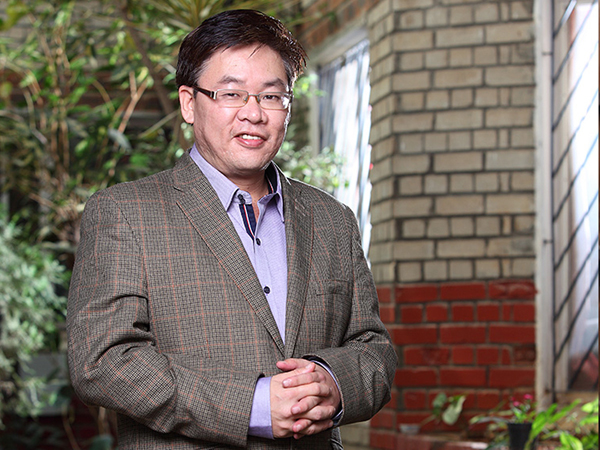
Social Sciences 2016
Kaivan Munshi
Frank Ramsey Professor of Economics, University of Cambridge, UK
Read More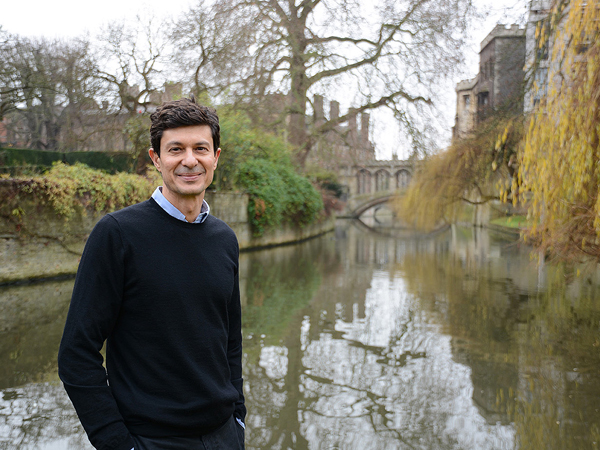
Social Sciences 2015
Srinath Raghavan
Senior Fellow, Centre for Policy Research, New Delhi
Read More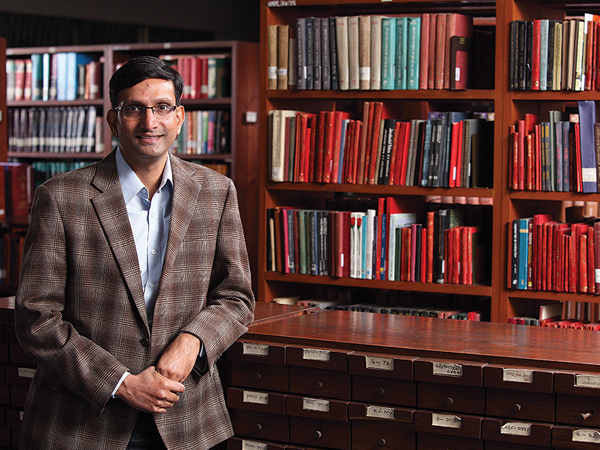
Social Sciences 2014
Esther Duflo
Abdul Latif Jameel Professor of Poverty Alleviation and Development Economics, Department of Economics, MIT, and Founder and Director, Abdul Latif Jameel Poverty Action Lab, Cambridge, USA
Read More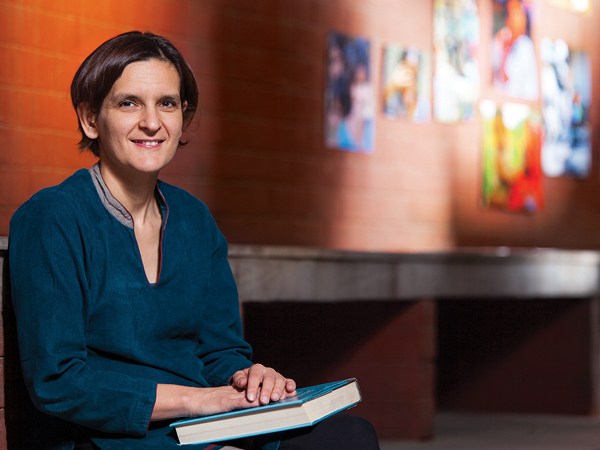
Social Sciences 2013
Aninhalli R. Vasavi
Senior Fellow, Nehru Memorial Museum and Library, New Delhi
Read More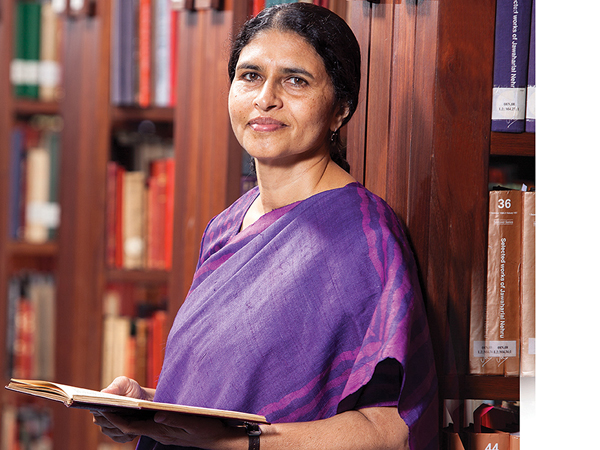
Social Sciences 2012
Arunava Sen
Professor, Economics and Planning Unit, Indian Statistical Institute, New Delhi
Read More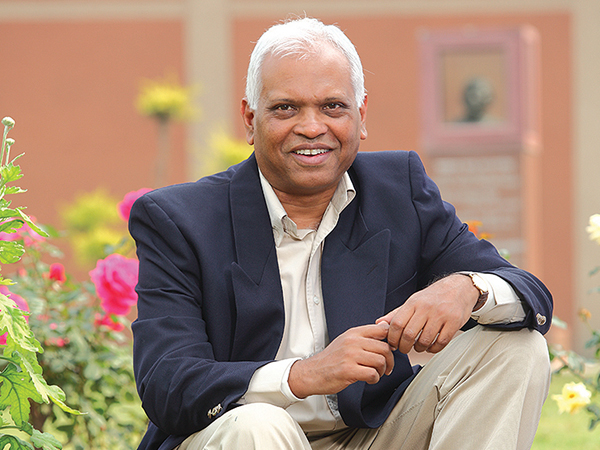
Jury
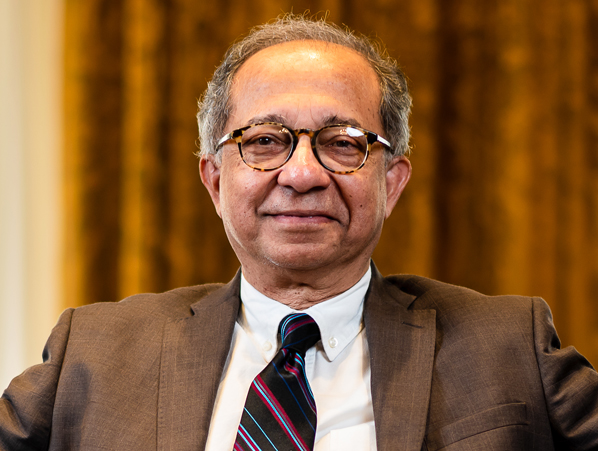
Kaushik Basu
Professor of Economics and the Carl Marks Professor of International Studies, Cornell University and Former Chief Economist and Senior Vice President, World Bank
View More
Prof. Kaushik Basu
Professor of Economics and the C. Marks Professor of International Studies, Cornell University and Former Chief Economist and Senior Vice President, World Bank
View More
Prof. Kaushik Basu
Professor of Economics and the C. Marks Professor of International Studies, Cornell University and Former Chief Economist and Senior Vice President, World Bank
View More
Prof. Kaushik Basu
Professor of Economics and the C. Marks Professor of International Studies, Cornell University and Former Chief Economist and Senior Vice President, World Bank
View More
Prof. Kaushik Basu
Professor of Economics and the C. Marks Professor of International Studies, Cornell University and Former Chief Economist and Senior Vice President, World Bank
View More
Prof. Kaushik Basu
Professor of Economics and the C. Marks Professor of International Studies, Cornell University and Former Chief Economist and Senior Vice President, World Bank
View More
Prof. Kaushik Basu
Professor of Economics and the C. Marks Professor of International Studies, Cornell University and Former Chief Economist and Senior Vice President, World Bank
View More
Prof. Kaushik Basu
Professor of Economics and the C. Marks Professor of International Studies, Cornell University and Former Chief Economist and Senior Vice President, World Bank
View More
Prof. Kaushik Basu
Chief Economist and Senior Vice President, World Bank and Professor of Economics and the C. Marks Professor of International Studies, Cornell University
View More
Kaushik Basu
Senior Vice President (Development Economics) and Chief Economist, World Bank, USA
View More
Prof. Kaushik Basu
Chief Economist and Senior Vice President, World Bank and Professor of Economics and the C. Marks Professor of International Studies, Cornell University
View More
Kaushik Basu
Chief Economist and Senior Vice President, World Bank and Professor of Economics and the C. Marks Professor of International Studies, Cornell University
View More
Prof. Amartya Sen
Thomas W. Lamont University Professor, and Professor of Economics and Philosophy, Harvard University, USA
View More
Prof. Amartya Sen
Thomas W. Lamont University Professor, and Professor of Economics and Philosophy, Harvard University, USA
View More
Prof. Amartya Sen
Thomas W. Lamont University Professor, and Professor of Economics and Philosophy, Harvard University, USA
View MoreSocial Sciences 2025
Social Sciences 2024
Social Sciences 2023
Kaushik Basu is Professor of Economics and the Carl Marks Professor of International Studies at Cornell University. Prof. Basu is a former Chief Economist and Senior Vice President of the World Bank. Basu is the second World Bank Chief Economist from a developing country and the first from India. Prior to joining the World Bank, he served as Chief Economic Adviser to the Government of India. Prof. Kaushik Basu is a Fellow of the Econometric Society and received India's Padma Bhushan award as well as the National Mahalanobis Memorial award. He is currently President of the International Economic Association. Prof. Basu's contributions span development economics, welfare economics, industrial organization and game theory. In addition to Cornell, he has taught at the Delhi School of Economics, Harvard, Princeton and MIT. Prof. Kaushik Basu has published widely in academic journals and has contributed articles to many widely read magazines and newspapers. He has written several books including Beyond the Invisible Hand: Groundwork for a New Economics (Princeton University Press and Penguin); and An Economist in the Real World: The Art of Policymaking in India (MIT Press). Prof. Basu holds a Ph.D. in Economics from the London School of Economics. He has received honorary doctorates from several institutes, including IIT-Bombay, and Fordham University, New York. He was recipient of the 2021 Humboldt Research Award for Economics, given by the Humboldt Foundation, Berlin.
Dr. Mamta Murthi is Vice President for Human Development at the World Bank. Dr. Murthi oversees Global Practices for Education; Health, Nutrition, and Population; Gender; Social Protection and Jobs – as well as the Human Capital Project.
Mamta Murthi joined the World Bank as a Young Professional in 1995. She holds a bachelor’s degree in economics from St. Stephen’s College, University of Delhi and a D. Phil. in Economics from the University of Oxford. From 1998-2000 Dr. Murthi was MacArthur Fellow for Poverty and Inequality at King’s College, Cambridge. She has written extensively on poverty, demography, education, pensions, and skills and is well-known for her econometric studies on fertility in India.
A noted Indian political theorist, Prof. Rajeev Bhargava has held professorships at several universities including Jawaharlal Nehru University, University of Delhi and between 2005-2019 at the Centre for the Study of Developing Societies (CSDS). He was also the Director of the Centre from 2007-14. He is currently an Honorary Fellow at the center and the Director of its Parekh Institute of Indian Thought. Prof. Bhargava is an Honorary Fellow at Balliol College, Oxford. He has been a Fellow at Harvard University, Columbia University, University of Bristol, Institute of Advanced Studies, Jerusalem, Wissenschaftskolleg, Berlin, and the Institute for Human Sciences, Vienna. From 2014-18, he was a Professorial Fellow at ACU, Sydney and Berggruen Fellow at Stanford, NYU, and Tsingua universities between 2015-2017. In 2022, he was a senior research fellow at the University of Leipzig.
Prof. Bhargava received his B.A. degree in economics from the University of Delhi, followed by an M.Phil. (Politics) and D.Phil. from Oxford University. Internationally renowned for his work on secularism and methodological individualism, some of his publications include Individualism in Social Science (1992), What is Political Theory and Why Do We Need It? (2010), and The Promise of India’s Secular Democracy (2010). Apart from conceiving and editing a textbook on political theory for undergraduates, Bhargava has regularly written for The Hindu. The compilation of these essays is now available as Between Hope and Despair (Bloomsbury, 2023). His latest book called Reimagining Indian Secularism will be published in July 2023 by Seagull. He is on the advisory board of several national and international institutions and was a consultant for the UNDP report on cultural liberty.
Prof. Gopalkrishna Gandhi read English Literature and History at St Stephen’s College, Delhi University, India and, entering the Indian Administrative Service, held administrative positions in Tamil Nadu and at the national headquarters. Prof. Gandhi was Secretary to the President of India, Director of The Nehru Centre in the High Commission of India, London, High Commissioner for India in South Africa, Lesotho, Sri Lanka, and Ambassador of India in Norway and Iceland. He was Governor of West Bengal from 2004 to 2009. Gopalkrishna Gandhi is currently Distinguished Professor of History at Ashoka University in Sonepat, India.
Among his published works are Saranam—a novel in English (published by Affiliated East-West, Madras in 1985), re-published as Refuge (by Ravi Dayal, New Delhi in 1987); Dara Shukoh, a play in verse, (Banyan Books, New Delhi, 1993); The Oxford India Gandhi – Essential Writings ed. (Oxford University Press, New Delhi, 2007); Of a Certain Age – Twenty Life-Sketches (Penguin India, 2011); My Dear Bapu – Correspondence between C. Rajagopalachari and Mohandas K. Gandhi ( ed. Penguin,2012); The Tirukkural (translated into English) (Aleph, 2015); Abolishing the Death Penalty (Aleph,2016); Restless as Mercury: The Story of my Life as a Young Man – Mohandas K. Gandhi (ed. Aleph, 2021); Scorching Love : Letters from Mohandas Karamchand Gandhi to his son, Devadas (ed. with Tridip Suhrud, OUP,2022)
Andrew Willford is Professor of Anthropology at Cornell University and current Chair of Cornell’s Institutional Review Board (IRB). Prof. Willford's work characteristically explores psychological and phenomenological aspects of selfhood, identity, and subjectivity within a matrix of power and statecraft. His previous research has focused upon Tamil displacement, revivalism, and identity politics in Malaysia and India. Willford held the Fulbright-Nehru Distinguished Chair Fellowship in 2022 and was based at the Banyan Academy of Leadership in Mental Health in Chennai.
Andrew Willford's' current work focuses upon mental health and culture in both urban and rural India. A two-volume study, Modernity and Malevolence in the Psychiatric Clinic: Troubled Identities and Anxious Selves in South India; and Modernity and Malevolence in Rural India: Indigenous Hauntings and Community Healing in The Nilgiris is under review with an academic press.
Previous publications include, The Future of Bangalore’s Cosmopolitan Pasts: Civility and Difference in a Global City (University of Hawaii, 2018); Tamils and the Haunting of Justice: History and Recognition in Malaysia’s Plantations (University of Hawaii Press, 2014); Cage of Freedom: Tamil Identity and the Ethnic Fetish in Malaysia (University of Michigan Press, 2006); Spirited Politics: Religion and Public Life in Contemporary Southeast Asia, Andrew Willford and Kenneth George, eds. (Southeast Asia Program Publications, Cornell University, 2005); and Clio/Anthropos: Exploring the Boundaries between History and Anthropology, Andrew Willford and Eric Tagliacozzo, eds. (Stanford University Press, 2009).
Prof. Sonalde Desai is a demographer whose work deals primarily with social transformation and its impact on the lives of individuals with a focus on education, employment, gender, and maternal and child health.
She leads the India Human Development Survey of over 40,000 households, one of the few national panel surveys in India providing a rich and free public resource for studying the transformation of the Indian society in the 21st Century. Prof. Desai has published extensively in Indian and international journals and served on editorial boards of several major journals. She is a frequent contributor to Indian English language newspapers.
Prof. Desai received a Ph.D. from Stanford University and post-doctoral training at the University of Chicago and RAND Corporation. Desai was elected President of Population Association of America for 2022 and has been named a Fellow of American Association for the Advancement of Science (AAAS).
Social Sciences 2022
Prof. Kaushik Basu is Professor of Economics and the C. Marks Professor of International Studies at Cornell University. Prof. Basu is a former Chief Economist and Senior Vice President of the World Bank. Prof. Basu is the second World Bank Chief Economist from a developing country and the first from India.
Prior to joining the World Bank, he served as Chief Economic Adviser to the Government of India. Prof. Basu is a Fellow of the Econometric Society and received India's Padma Bhushan award as well as the National Mahalanobis Memorial award. He is currently President of the International Economic Association. Prof. Basu's contributions span development economics, welfare economics, industrial organization and game theory. In addition to Cornell, he has taught at the Delhi School of Economics, Harvard, Princeton and MIT. He has published widely in academic journals, and has contributed articles to many widely read magazines and newspapers. He has written several books including 'Beyond the Invisible Hand: Groundwork for a New Economics' (Princeton University Press and Penguin); and 'An Economist in the Real World: The Art of Policymaking in India' (MIT Press). Prof. Basu holds a Ph.D. in economics from the London School of Economics. He has received honorary doctorates from several institutes, including IIT, Mumbai, and Fordham University, New York. He was recipient of the 2021 Humboldt Research Award for Economics, given by the Humboldt Foundation, Berlin.
Prof. Jorgen Weibull is a Swedish mathematician and economist who studied at the Royal Institute of Technology (KTH) earning his Master’s degree in Physics and Applied Mathematics followed by Ph.D. in Applied Mathematics. His main field of research is non-cooperative and evolutionary game theory, with applications in economics, political science, and evolutionary biology.
Apart from being a full-time professor during his tenure, he has been associated with several other prestigious committees such as being the Member of the Organizing Committee for the Nobel Symposium on Behavioral and Experimental Economics, 2001; Department Chairman, Department of Economics, Stockholm School of Economics, 2005-2007; and Member of the Council of the Econometric Society, 2017-2020, etc. He served on the committee for the Alfred Nobel Memorial Prize in Economic Sciences for 9 years (1998-2007), out of which he was the committee chair for 3 years (2005-2007).
A recipient of several honors and fellowships, some of his notable recognitions have been: Member of the Royal Swedish Academy of Sciences (1998 – present); Recipient of the Torsten and Ragnar Söderberg Prize in Economic Science, 1999; Fellow of Econometric Society (1999 – present); Fellow of the European Economic Association (2004 – present); and the Honorary Doctor at the Swedish School of Economics, Helsinki, Finland, 2009.
Prof. Eliana La Ferrara was the Professor of Economics and Invernizzi Chair in Development Economics at Bocconi University, Milan. She was also the Scientific Director of the Laboratory for Anti-Poverty Programs at Bocconi. She is currently Professor of Public Policy at Harvard Kennedy School.
A well-renowned economist, Prof. Eliana La Ferrara’s research interest lies in the field of development economics, with a focus on the role of ethnicity, conflict, social norms, institutions and media. She has studied ethnic diversity, kin structure and social norms, and the effects of television on social outcomes. She has also investigated political constraints to development, with particular focus on violent conflict in Africa. Her work has been published in the American Economic Review, Quarterly Journal of Economics, Journal of Development Economics, American Economic Journal: Applied Economics and the Journal of the European Economic Association.
She earned her Ph.D. in Economics from Harvard University in 1999 and was Professor of Economics at Bocconi University until 2022. She holds many honors and fellowships, such as: Foreign Honorary Member of the AEA, International Honorary Member of the American Academy of Arts and Sciences, Fellow of the Econometric Society, and Research Fellow of the Centre for Economic Policy Research (CEPR). She is an Affiliate of J-PAL and the Director of the Laboratory for Effective Anti-poverty Policies (LEAP) at Bocconi. She is 2nd Vice-President of the Econometric Society and has been President of the European Economic Association and of the Bureau for Research in the Economic Analysis of Development (BREAD). She is the recipient of the 2020 Birgit Grodal Award and of numerous grants, including two from the European Research Council (ERC). She serves on the editorial board of several journals and has also worked as consultant for the World Bank and the Inter-American Development Bank.
Prof. Haroon Bhorat is one of the most cited South African economists globally. His work and research interests cover labor economics, poverty, income distribution and inclusive growth. He has co-authored and co-edited several books on labor market and poverty issues in Africa – and more than 250 academic journal articles, book chapters, and working papers. He is a Board Member of the UNU World Institute for Development Economics Research (UNU-WIDER), a member of the executive committee of the International Economic Association (IEA), and he sits on the Partnership for Economic Policy (PEP) Board of Directors. He also retains an involvement in the private sector as he serves on the Board of two listed companies in the Retail and financial services sectors.
He earned his Ph.D. in Economics from Stellenbosch University in South Africa, studied at the Massachusetts Institute of Technology, and was a Cornell University research fellow. He holds the prestigious SARChI National Research Chair in Economic Growth, Poverty and Inequality research. Prof. Bhorat is a Non-resident Senior Fellow at the Brookings Institution, a Research Fellow at IZA (the Institute for the Study of Labour in Bonn), and a member of the University of Cape Town College of Fellows.
Prof. Bhorat has undertaken extensive work for several South African government departments. He currently sits on the Presidential Economic Advisory Council (PEAC), established by President Ramaphosa to generate new ideas for economic growth, job creation and addressing poverty. Past career appointments include being an Advisor on the South African Parliament’s High Level Panel on Acceleration of Change and Transformation; Economic Advisor to two past Ministers of Finance; and Economic Advisor to former South African Presidents, formally serving on the Presidential Economic Advisory Panel.
A well-known Indian economist, Prof. Ashwini Deshpande is Professor of Economics at Ashoka University, India. Her Ph.D. and early publications have been on the international debt crisis of the 1980s. Subsequently, she has been working on the economics of discrimination and affirmative action, with a focus on caste and gender in India. She has published extensively in leading scholarly journals. She is the author of Grammar of Caste: economic discrimination in contemporary India, Oxford University Press, New Delhi, 2011 (Hardcover) and 2017 (Paperback); and Affirmative Action in India’, Oxford University Press, New Delhi, Oxford India Short Introductions series, 2013. She is the editor of Boundaries of Clan and Color: Transnational Comparisons of Inter-Group Disparity (along with William Darity, Jr.), Routledge, London, 2003; Globalization and Development: A Handbook of New Perspectives, Oxford University Press, New Delhi, 2007 (Hardcover) and 2010 (Paperback); Capital Without Borders: Challenges to Development, Anthem Press, UK, 2010 (Hardcover) and 2012 (Paperback) and Global Economic Crisis and the Developing World (with Keith Nurse), Routledge, London, 2012. She received the EXIM Bank award for outstanding dissertation (now called the IERA Award) in 1994, and the 2007 VKRV Rao Award for Indian economists under 45.
She is the founding director of the new Centre for Economic Data and Analysis (CEDA) at Ashoka University.
Prof. Avinash Dixit is a Senior Research Fellow at Nuffield College, Oxford. His research interests have included microeconomic theory, game theory, international trade, industrial organization, growth and development theories, public economics, political economy, and the new institutional economics. His book publications include Theory of International Trade (with Victor Norman), The Art of Strategy (with Barry Nalebuff), Investment Under Uncertainty (with Robert Pindyck), Games of Strategy (with Susan Skeath), Lawlessness and Economics: Alternative Modes of Governance, and The Making of Economic Policy: A Transaction Cost Politics Perspective. He has also published numerous articles in professional journals and collective volumes. He was President of the Econometric Society in 2001 and the American Economic Association in 2008. He was elected to the American Academy of Arts and Sciences in 1992, the National Academy of Sciences in 2005, the American Philosophical Society in 2010, and was elected a Corresponding Fellow of the British Academy in 2006 and more recently, Honorary Fellow of Cambridge, 2018. He was awarded the Padma Vibhushan in 2016.
Social Sciences 2021
Kaushik Basu is Professor of Economics and the Carl Marks Professor of International Studies at Cornell University. Prof. Basu is a former Chief Economist and Senior Vice President of the World Bank. Prof. Basu is the second World Bank Chief Economist from a developing country and the first from India.
Prior to joining the World Bank, he served as Chief Economic Adviser to the Government of India. Prof. Basu is a Fellow of the Econometric Society and received India’s Padma Bhushan award as well as the National Mahalanobis Memorial award. Prof. Basu’s contributions span development economics, welfare economics, industrial organization and game theory. In addition to Cornell, he has taught at the Delhi School of Economics, Harvard, Princeton and MIT. He has published widely in academic journals, and has contributed articles to many widely read magazines and newspapers. He has written several books including ‘Beyond the Invisible Hand: Groundwork for a New Economics’ (Princeton University Press and Penguin); and ‘The Republic of Beliefs: A New Approach to Law and Economics’ (Princeton University Press). Mr. Basu holds a Ph.D. in economics from the London School of Economics. He has received honorary doctorates from several institutes, including IIT, Mumbai, and Fordham University, New York.
Prof. Niraja Jayal works at the intersection of political theory and the study of Indian politics. Her scholarly work has been in four main areas: democracy, representation, citizenship and governance (including local governance and gender and governance). She is presently working on the crisis of the public university in India. Her most recent publication (edited) is Re-Forming India: The Nation Today. (Penguin Random House, 2019) Her book Citizenship and Its Discontents (Harvard University Press, 2013) won the Ananda Kentish Coomaraswamy Prize of the Association of Asian Studies in 2015. She is also the author of Representing India: Ethnic Diversity and the Governance of Public Institutions (Palgrave Macmillan, 2006) and Democracy and the State: Welfare, Secularism and Development in Contemporary India (OUP, 1999). She has co-edited The Oxford Companion to Politics in India, and is the editor/co-editor of, among others, Democracy in India (OUP, 2001) and Local Governance in India: Decentralisation and Beyond (OUP 2005). She has held visiting appointments at, among others, King’s College, London; the EHESS, Paris; Princeton University; and the University of Melbourne. In 2009, she delivered the Radhakrishnan Memorial Lectures at All Souls College, Oxford. She was Vice-President of the American Political Science Association in 2011-12.
Prof. Amita Baviskar’s research and teaching address the cultural politics of environment and development in rural and urban India. She focuses on the role of social inequality and identities in natural resource conflicts. Currently, she is working on the politics of food and changing agrarian environments in Madhya Pradesh and studying the social experience of heat and air pollution in Delhi. After studying Economics and Sociology at the University of Delhi, she received her PhD in Development Sociology from Cornell University. She has taught at the University of Delhi and has been a visiting scholar at several universities including Stanford, Cornell, Yale, Sciences Po, University of California at Berkeley and the University of Cape Town. Her first book In the Belly of the River: Tribal Conflicts over Development in the Narmada Valley and other writings explore the themes of resource rights, popular resistance and discourses of environmentalism. Her recent publications include the edited books Elite and Everyman: The Cultural Politics of the Indian Middle Classes (with Raka Ray) and First Garden of the Republic: Nature on the President’s Estate. In January 2020, she published Uncivil City: Ecology, Equity and the Commons in Delhi. Her contributions to developing the field of environmental sociology in India and to the study of social movements have been recognised by her peers. She was awarded the 2005 Malcolm Adiseshiah Award for Distinguished Contributions to Development Studies, the 2008 VKRV Rao Prize for Social Science Research, and the 2010 Infosys Prize for Social Sciences.
Prof. Andrew Willford's work characteristically explores psychological and phenomenological aspects of selfhood, identity, and subjectivity within a matrix of power and statecraft. His previous research has focused upon Tamil displacement, revivalism, and identity politics in Malaysia and India. His latest book, The Future of Bangalore’s Cosmopolitan Pasts: Civility and Difference in a Global City (University of Hawaii, 2018) examines the politics of language, religion, identity, and belonging in Bangalore, India, over a 20-year period. Other recent books include: Tamils and the Haunting of Justice: History and Recognition in Malaysia’s Plantations (University of Hawaii Press, 2014); Cage of Freedom: Tamil Identity and the Ethnic Fetish in Malaysia (University of Michigan Press, 2006), Spirited Politics: Religion and Public Life in Contemporary Southeast Asia, Andrew Willford and Kenneth George, eds. (Southeast Asia Program Publications, Cornell University, 2005), and Clio/Anthropos: Exploring the Boundaries between History and Anthropology, Andrew Willford and Eric Tagliacozzo, eds. (Stanford University Press, 2009).
A noted Indian political theorist, Prof. Bhargava has held professorships at several universities including Jawaharlal Nehru University, University of Delhi and since 2005, with the Centre for the Study of Developing Societies (CSDS). He was also the Director of the Centre from 2007-14. He is an Honorary Fellow, Balliol College, Oxford. He has been a Fellow at Harvard University, Columbia University, University of Bristol, Institute of Advanced Studies, Jerusalem, Wissenschaftskolleg, Berlin, and the Institute for Human Sciences, Vienna. From 2014-18, he was a Professorial Fellow at ACU, Sydney and Berggruen Fellow at Stanford, NYU and Tsingua universties between 2015-2017.
He received his B.A. degree in economics from the University of Delhi, followed by an M.Phil (Politics). and D.Phil. from Oxford University. Internationally renowned for his work on secularism and methodological individualism, some of his publications include Individualism in Social Science (1992), What is Political Theory and Why Do We Need It? (2010), and The Promise of India’s Secular Democracy (2010). He is on the advisory board of several national and international institutions, and was a consultant for the UNDP report on cultural liberty.
Social Sciences 2020
Prof. Kaushik Basu is Professor of Economics and the C. Marks Professor of International Studies at Cornell University. Prof. Basu is a former Chief Economist and Senior Vice President of the World Bank. Prof. Basu is the second World Bank Chief Economist from a developing country and the first from India.
Prior to joining the World Bank, he served as Chief Economic Adviser to the Government of India. Prof. Basu is a Fellow of the Econometric Society and received India’s Padma Bhushan award as well as the National Mahalanobis Memorial award. He is currently President of the International Economic Association. Prof. Basu’s contributions span development economics, welfare economics, industrial organization and game theory. In addition to Cornell, he has taught at the Delhi School of Economics, Harvard, Princeton and MIT. He has published widely in academic journals, and has contributed articles to many widely read magazines and newspapers. He has written several books including ‘Beyond the Invisible Hand: Groundwork for a New Economics’ (Princeton University Press and Penguin); and ‘An Economist in the Real World: The Art of Policymaking in India’ (MIT Press). Mr. Basu holds a Ph.D. in economics from the London School of Economics. He has received honorary doctorates from several institutes, including IIT, Mumbai, and Fordham University, New York.
Prof. Jorgen Weibull is a Swedish mathematician and economist who studied at the Royal Institute of Technology (KTH) earning his Master’s degree in physics and applied mathematics followed by Ph.D. in applied mathematics. His main field of research is non-cooperative and evolutionary game theory, with applications to economics, political science, and evolutionary biology.
Apart from being a full-time professor during his tenure, he has been associated with several other prestigious committees such as being the Member of the organizing committee for the Nobel Symposium on Behavioral and Experimental Economics, 2001; Department chairman, Department of Economics, Stockholm School of Economics, 2005-2007; and Member of the Council of the Econometric Society, 2017-2020, etc.
A recipient of several honors and fellowships, some of his notable recognitions have been: Member of the Royal Swedish Academy of Sciences (1998 – present); Recipient of the Torsten and Ragnar Söderberg Prize in Economic Science, 1999; Fellow of Econometric Society (1999 – present); Fellow of the European Economic Association (2004 – present); and the Honorary doctor at the Swedish School of Economics, Helsinki, Finland, 2009.
A well-renowned economist, Prof. Eliana La Ferrara’s research interest lies in the field of development economics, with a focus on the role of ethnicity, conflict, social norms, institutions and media. She has studied ethnic diversity, kin structure and social norms, and the effects of television on social outcomes. She has also investigated political constraints to development, with particular focus on violent conflict in Africa. Her work has been published in the American Economic Review, Quarterly Journal of Economics, Journal of Development Economics, American Economic Journal: Applied Economics and the Journal of the European Economic Association.
She earned her Ph.D. in Economics from Harvard University in 1999 and went on to hold many honors and fellowships, such as: International Honorary Member of the American Academy of Arts and Sciences, Fellow of the Econometric Society, and Research Fellow of the Centre for Economic Policy Research (CEPR). She is an Affiliate of J-PAL and the Director of the Laboratory for Effective Anti-poverty Policies (LEAP) at Bocconi. She has been President of the European Economic Association and of the Bureau for Research in the Economic Analysis of Development (BREAD). She is the recipient of the 2020 Birgit Grodal Award and of numerous grants, including two from the European Research Council (ERC). She serves on the editorial board of several journals and has also worked as consultant for the World Bank and the Inter-American Development Bank.
Prof. Haroon Bhorat’s work and research interest covers labor economics, poverty, and income distribution. He has co-authored and co-edited several books on labor market and poverty issues in Africa – as well as over 200 academic journal articles, book chapters, and working papers. In addition to sitting on the editorial advisory board of the World Bank Economic Review, he is also is a Board Member of the National Research Foundation (NRF), the UNU World Institute for Development Economics Research (UNU-WIDER), and sits on the Partnership for Economic Policy (PEP) Board of Directors.
He earned his Ph.D. in Economics from Stellenbosch University in South Africa, studied at the Massachusetts Institute of Technology, and was a Cornell University research fellow. He holds the prestigious National Research Chair under the theme of Economic Growth, Poverty and Inequality: Exploring the Interactions for South Africa. He is a Non-resident Senior Fellow at the Brookings Institution affiliated to the Global Economy and Development Program and the Africa Growth Initiative (AGI), and a Research Fellow at IZA, the Institute for the Study of Labour in Bonn.
He has undertaken extensive work for several South African government departments, his career appointments including: being an Advisor on the South African Parliament’s High Level Panel on Acceleration of Change and Transformation; Economic advisor to two past Ministers of Finance; and Economic Advisor to former South African Presidents, formally serving on the Presidential Economic Advisory Panel. He currently sits on the Presidential Economic Advisory Council (PEAC), established by President Ramaphosa to generate new ideas for economic growth, job creation and addressing poverty.
A well-known Indian economist, Prof. Ashwini Deshpande is Professor of Economics at Ashoka University, India. Her Ph.D. and early publications have been on the international debt crisis of the 1980s. Subsequently, she has been working on the economics of discrimination and affirmative action, with a focus on caste and gender in India. She has published extensively in leading scholarly journals. She is the author of "Grammar of Caste: economic discrimination in contemporary India", Oxford University Press, New Delhi, 2011 (Hardcover) and 2017 (Paperback); and "Affirmative Action in India’, Oxford University Press, New Delhi, Oxford India Short Introductions series, 2013. She is the editor of "Boundaries of Clan and Color: Transnational Comparisons of Inter-Group Disparity" (along with William Darity, Jr.), Routledge, London, 2003; "Globalization and Development: A Handbook of New Perspectives", Oxford University Press, New Delhi, 2007 (Hardcover) and 2010 (Paperback); "Capital Without Borders: Challenges to Development", Anthem Press, UK, 2010 (Hardcover) and 2012 (Paperback) and "Global Economic Crisis and the Developing World" (with Keith Nurse), Routledge, London, 2012. She received the EXIM Bank award for outstanding dissertation (now called the IERA Award) in 1994, and the 2007 VKRV Rao Award for Indian economists under 45.
She is the founding director of the new Centre for Economic Data and Analysis (CEDA) at Ashoka University.
Prof. Avinash Dixit is a Senior Research Fellow at Nuffield College, Oxford. His research interests have included microeconomic theory, game theory, international trade, industrial organization, growth and development theories, public economics, political economy, and the new institutional economics. His book publications include Theory of International Trade (with Victor Norman), The Art of Strategy (with Barry Nalebuff), Investment Under Uncertainty (with Robert Pindyck), Games of Strategy (with Susan Skeath), Lawlessness and Economics: Alternative Modes of Governance, and The Making of Economic Policy: A Transaction Cost Politics Perspective. He has also published numerous articles in professional journals and collective volumes. He was President of the Econometric Society in 2001 and the American Economic Association in 2008. He was elected to the American Academy of Arts and Sciences in 1992, the National Academy of Sciences in 2005, the American Philosophical Society in 2010, and was elected a Corresponding Fellow of the British Academy in 2006 and more recently, Honorary Fellow of Cambridge, 2018. He was awarded the Padma Vibhushan in 2016.
Social Sciences 2019
Kaushik Basu is Professor of Economics and the C. Marks Professor of International Studies at Cornell University. He is a former Chief Economist and Senior Vice President of the World Bank. He is the second World Bank Chief Economist from a developing country and the first from India.
Prior to joining the World Bank, he served as Chief Economic Adviser to the Government of India. Prof. Basu is a Fellow of the Econometric Society and received India’s Padma Bhushan award as well as the National Mahalanobis Memorial award. He is currently President of the International Economic Association. Prof. Basu’s contributions span development economics, welfare economics, industrial organization and game theory. In addition to Cornell, he has taught at the Delhi School of Economics, Harvard, Princeton and MIT. He has published widely in academic journals, and has contributed articles to many widely read magazines and newspapers. He has written several books including ‘Beyond the Invisible Hand: Groundwork for a New Economics’ (Princeton University Press and Penguin); and ‘An Economist in the Real World: The Art of Policymaking in India’ (MIT Press). Mr. Basu holds a PhD in economics from the London School of Economics. He has received honorary doctorates from several institutes, including IIT, Mumbai, and Fordham University, New York.
Amita Baviskar is Professor of Sociology at the Institute of Economic Growth, Delhi. After studying Economics and Sociology at the University of Delhi, she received her PhD in Development Sociology from Cornell University. She has taught at the University of Delhi and has been a visiting scholar at several universities including Stanford, Cornell, Yale, SciencesPo, University of California at Berkeley and the University of Cape Town.
Baviskar’s research focuses on the cultural politics of environment and development in rural and urban India. Her first book In the Belly of the River: Tribal Conflicts over Development in the Narmada Valley and other writings explore the themes of resource rights, popular resistance and discourses of environmentalism. Her recent publications include the edited books Elite and Everyman: The Cultural Politics of the Indian Middle Classes (with Raka Ray) and First Garden of the Republic: Nature on the President’s Estate.
A recipient of the 2010 Infosys Prize for Social Sciences, Baviskar was also awarded the 2005 Malcolm Adiseshiah Award for Distinguished Contributions to Development Studies, and the 2008 VKRV Rao Prize for Social Science Research.
Andrew Willford is Professor of Anthropology at Cornell University and current Chair of Cornell’s Institutional Review Board (IRB). Prof. Willford's work characteristically explores psychological and phenomenological aspects of selfhood, identity, and subjectivity within a matrix of power and statecraft. His previous research has focused upon Tamil displacement, revivalism, and identity politics in Malaysia and India.
His latest book, The Future of Bangalore’s Cosmopolitan Pasts: Civility and Difference in a Global City (University of Hawaii, 2018) examines the politics of language, religion, identity, and belonging in Bangalore, India, over a 20-year period. Other recent books include: Tamils and the Haunting of Justice: History and Recognition in Malaysia’s Plantations (University of Hawaii Press, 2014); Cage of Freedom: Tamil Identity and the Ethnic Fetish in Malaysia (University of Michigan Press, 2006), Spirited Politics: Religion and Public Life in Contemporary Southeast Asia, Andrew Willford and Kenneth George, eds. (Southeast Asia Program Publications, Cornell University, 2005), and Clio/Anthropos: Exploring the Boundaries between History and Anthropology, Andrew Willford and Eric Tagliacozzo, eds. (Stanford University Press, 2009).
Srinath Raghavan is Professor of International Relations and History at Ashoka University. He previously taught at King’s College London and worked at Centre for Policy Research, New Delhi. Raghavan is author of several books including War and Peace in Modern India: A Strategic History of the Nehru Years (Macmillan & Permanent Black, 2010); 1971: A Global History of the Creation of Bangladesh (Harvard University Press & Permanent Black, 2013); India’s War: The Making of Modern South Asia, 1939-1945 (Penguin Allen Lane & Basic Books, 2016); and The Most Dangerous Place: A History of the United States in South Asia (Penguin Allen Lane & Basic Books, 2018).
Raghavan has served as a member of the National Security Advisory Board. He was the Chief Editor of the Kargil War History for the Ministry of Defence, Government of India. Prior to entering academia, he spent six years as an infantry officer in the Indian Army.
Raghavan took his BSc in Physics from the University of Madras and his MA and PhD in War Studies from King’s College London. He is a recipient of the K. Subrahmanyam Award for Strategic Studies (2011) and the Infosys Prize for Social Sciences (2015).
Avinash Dixit is a Senior Research Fellow at Nuffield College, Oxford. His research interests have included microeconomic theory, game theory, international trade, industrial organization, growth and development theories, public economics, political economy, and the new institutional economics. His book publications include Theory of International Trade (with Victor Norman), The Art of Strategy (with Barry Nalebuff), Investment Under Uncertainty (with Robert Pindyck), Games of Strategy (with Susan Skeath), Lawlessness and Economics: Alternative Modes of Governance, and The Making of Economic Policy: A Transaction Cost Politics Perspective. He has also published numerous articles in professional journals and collective volumes. He was President of the Econometric Society in 2001 and the American Economic Association in 2008. He was elected to the American Academy of Arts and Sciences in 1992, the National Academy of Sciences in 2005, the American Philosophical Society in 2010, and was elected a Corresponding Fellow of the British Academy in 2006 and more recently, Honorary Fellow of Cambridge, 2018. He was awarded the Padma Vibhushan in 2016.
A noted Indian political theorist, Prof. Bhargava has held professorships at several universities including Jawaharlal Nehru University, University of Delhi and since 2005, with the Centre for the Study of Developing Societies (CSDS). He was also the Director of the Centre from 2007-14. He is an Honorary Fellow, Balliol College, Oxford. He has been a Fellow at Harvard University, Columbia University, University of Bristol, Institute of Advanced Studies, Jerusalem, Wissenschaftskolleg, Berlin, and the Institute for Human Sciences, Vienna. From 2014-18, he was a Professorial Fellow at ACU, Sydney and Berggruen Fellow at Stanford, NYU and Tsingua universties between 2015-2017.
He received his B.A. degree in economics from the University of Delhi, followed by M.Phil (Politics). and D.Phil. from Oxford University. Internationally renowned for his work on secularism and methodological individualism, some of his publications include Individualism in Social Science (1992), What is Political Theory and Why Do We Need It? (2010), and The Promise of India’s Secular Democracy (2010). He is on the advisory board of several national and international institutions, and was a consultant for the UNDP report on cultural liberty.
Social Sciences 2018
Kaushik Basu is Professor of Economics and the C. Marks Professor of International Studies at Cornell University. He is a former Chief Economist and Senior Vice President of the World Bank. He is the second World Bank Chief Economist from a developing country and the first from India.
Prior to joining the World Bank, he served as Chief Economic Adviser to the Government of India. Prof. Basu is a Fellow of the Econometric Society and received India’s Padma Bhushan award as well as the National Mahalanobis Memorial award. He is currently President of the International Economic Association. Prof. Basu’s contributions span development economics, welfare economics, industrial organization and game theory. In addition to Cornell, he has taught at the Delhi School of Economics, Harvard, Princeton and MIT. He has published widely in academic journals, and has contributed articles to many widely read magazines and newspapers. He has written several books including ‘Beyond the Invisible Hand: Groundwork for a New Economics’ (Princeton University Press and Penguin); and ‘An Economist in the Real World: The Art of Policymaking in India’ (MIT Press). Mr. Basu holds a PhD in economics from the London School of Economics. He has received honorary doctorates from several institutes, including IIT, Mumbai, and Fordham University, New York.
An Indian economist who is currently the Professor of Economics at MIT, Prof. Banerjee is a co-founder of the Abdul Latif Jameel Poverty Action Lab, a research affiliate of Innovations for Poverty Action, along with being a Member of the Consortium on Financial Systems and Poverty. His prior appointments also include: President of the Bureau for the Research in the Economic Analysis of Development; Research associate of the National Bureau of Economic Research; A Research Fellow at the Centre for Economic Policy Research; An International Research Fellow of the Kiel Institute; Fellow at the American Academy of Arts and Science; Fellow at the Econometric Society. He also has been a Guggenheim Fellow and an Alfred P. Sloan Fellow.
He completed his M.A. in Economics at the Jawaharlal Nehru University, Delhi, 1983, and went on to obtain a Ph.D. in Economics at Harvard in 1988.
Prof. Banerjee was honored with the Infosys Prize 2009 for his outstanding contributions to the economic theory of development, and for his pioneering work in the empirical evaluation of public policy.
He is the co-author of Poor Economics, which won the Goldman Sachs Business Book of the Year. Most recently, he served on the U.N. Secretary-General’s High-level Panel of Eminent Persons on the Post-2015 Development Agenda.
Prof. Dhillon is a Professor of Political Economy in the Department of Political Economy at King’s College London. She is also a Research Group leader for Quantitative Political Economy. Prior to this, she served as a Professor at the University of Warwick, apart from being a visiting scholar at the Federal Reserve Bank, St. Louis, May 2012 and a Fellow at the Institute of Advanced Study, Princeton 2010-11. She received her PhD from State University of New York, Stony Brook in 1994. Her main fields of interest lie in Political Economy, Social Choice Theory, Public Economics and Development Economics. Prof. Dhillon has been awarded prestigious research grants such as Voting Over Distributed Ledgers (joint with computer scientists at King's College and University of Surrey) from the EPSRC, Research Fellow, Institute of Advanced Study, Princeton, 2010-11; Legal and Economic Aspects of Sovereign Default ESRC Grant 2006-08, Principal Investigator; Political Economy of Centre-State Transfers, RTDF grant, University of Warwick, 1999; Rotary Foundation grant, 1997.
Prof. Maskin is a 2007 Nobel Laureate, honored in the field of Economics, for having laid the foundations of Mechanism Design – a theory for achieving social or economic goals through the design of institutions or procedures.
He received his A.B. and Ph.D from Harvard and was a postdoctoral fellow at Jesus College, Cambridge University. He was a faculty member at MIT (1977-1984), Harvard (1985-2000), and the Institute for Advanced Study, Princeton (2000-2011). He rejoined the Harvard faculty in 2012. He is a member of the National Academy of Sciences, a fellow of the American Academy of Arts and Sciences, Econometric Society, and the European Economic Association, and a Corresponding Fellow of the British Academy. He has been president of the Econometric Society, the Game Theory Society, and the Society for the Advancement of Economic Theory. He is the recipient of 17 honorary doctorates. Prof. Maskin is particularly known for his papers on mechanism design/implementation theory and has worked in other areas of economics, such as game theory, political economy, and contract theory.
Prof. Kotwal retired last year as an economics professor and the founding director of the Bachelor of International Economics (BIE) program at Vancouver School of Economics, the University of British Columbia (UBC). From 1995 to 2000, he served as the Head of the Department of Economics at UBC. He has also served as the Director at Centre for India and South Asia Research (UBC) from 2003 to 2008.Currently the Editor-in-chief at Ideas for India, a portal dedicated to the development and policy issues in India. His research has focused on development issues such as the process of poverty decline, labor and credit markets in developing countries, the role of agriculture in development, the role of international trade, and rural governance. His other research interests include analysis of organizational structures in less developed countries, the interaction between agriculture and industry, economic reforms in India and their impact on poverty, political economy of developmental policy-making, social capital and rural economy, efficiency of government delivery systems, delivery of food subsidy in India, and determinants of educational quality.
Avinash Dixit is a Senior Research Fellow at Nuffield College, Oxford. His research interests have included microeconomic theory, game theory, international trade, industrial organization, growth and development theories, public economics, political economy, and the new institutional economics. His book publications include Theory of International Trade (with Victor Norman), The Art of Strategy (with Barry Nalebuff), Investment Under Uncertainty (with Robert Pindyck), Games of Strategy (with Susan Skeath), Lawlessness and Economics: Alternative Modes of Governance, and The Making of Economic Policy: A Transaction Cost Politics Perspective. He has also published numerous articles in professional journals and collective volumes. He was President of the Econometric Society in 2001 and the American Economic Association in 2008. He was elected to the American Academy of Arts and Sciences in 1992, the National Academy of Sciences in 2005, the American Philosophical Society in 2010, and was elected a Corresponding Fellow of the British Academy in 2006. He was awarded the Padma Vibhushan in 2016.
Social Sciences 2017
Kaushik Basu is Professor of Economics and the C. Marks Professor of International Studies at Cornell University. He is a former Chief Economist and Senior Vice President of the World Bank. Prior to joining the World Bank, he served as Chief Economic Adviser to the Government of India. Prof. Basu is a Fellow of the Econometric Society and received India’s Padma Bhushan award as well as the National Mahalanobis Memorial award. He is currently President of the International Economic Association. Prof. Basu’s contributions span development economics, welfare economics, industrial organization and game theory. In addition to Cornell, he has taught at the Delhi School of Economics, Harvard, Princeton and MIT. He has published widely in academic journals, and has contributed articles to many widely read magazines and newspapers. He has written several books including ‘Beyond the Invisible Hand: Groundwork for a New Economics’ (Princeton University Press and Penguin); and ‘An Economist in the Real World: the Art of Policymaking in India’ (MIT Press). Mr. Basu holds a PhD in economics from the London School of Economics. He has received honorary doctorates from several institutes, including IIT, Mumbai, and Fordham University, New York. He is the second World Bank Chief Economist from a developing country and the first from India.
Prof. Arjun Appadurai is the Goddard Professor in Media, Culture and Communication at New York University, where he is also a Senior Fellow at the Institute for Public Knowledge. Currently, he is a Visiting Professor at the Humboldt University, Berlin. He also holds visiting positions at the Tata Institute for Social Sciences (Mumbai, India) and The Max Planck Institute for the Study of Ethnic and Religious Diversity (Gottingen, Germany). Prof. Appadurai serves as the Honorary Professor in the Department of Media and Communication of Erasmus University Rotterdam.
Prof. Appadurai has held various professorial chairs and visiting appointments at some of top institutions in the United States and Europe. He is a world renowned expert on the cultural dynamics of globalization. He is the cofounder of the journal Public Culture and a fellow of the American Academy of Arts and Sciences.
Prof. Amita Baviskar is Professor of Sociology at the Institute of Economic Growth, Delhi. Her research focuses on the cultural politics of environment and development in rural and urban India. Her first book In the Belly of the River: Tribal Conflicts over Development in the Narmada Valley and other publications explore the themes of resource rights, popular resistance and discourses of environmentalism. She is currently studying food and agrarian environments in western India. Her recent publications include the edited books Contested Grounds: Essays on Nature, Culture and Power; Elite and Everyman: The Cultural Politics of the Indian Middle Classes (with Raka Ray); and First Garden of the Republic: Nature on the President’s Estate. She has taught at the University of Delhi, and has been a visiting scholar at Stanford, Cornell, Yale, SciencesPo and the University of California at Berkeley. She was awarded the 2005 Malcolm Adiseshiah Award for Distinguished Contributions to Development Studies, the 2008 VKRV Rao Prize for Social Science Research, and the 2010 Infosys Prize for Social Sciences.
Dr. Mehta holds a B.A. in Philosophy, Politics and Economics from St. John's College, Oxford University and a PhD in Politics from Princeton University. He was the President and Chief Executive of the Centre for Policy Research, one of India’s most distinguished think tanks, till June 2017, and takes on the mantle of vice-chancellor of Ashoka University on 1 July, 2017. He has earlier held positions of Visiting Professor of Government and Associate Professor of Government and of Social Studies at Harvard University, Professor of Philosophy and of Law and Governance at Jawaharlal Nehru University, and Visiting Professor at New York University Law School.. Dr. Mehta received the Malcolm S. Adishehshiah Award in 2010 and Infosys Prize 2011. He has done extensive public policy work. He was a member of the Government of India’s National Security Advisory Board. He was Member-Convener of the Prime Minister of India’s National Knowledge Commission.
His recent publications include The Oxford Handbook of the Indian Constitution (co-edited with Madhav Khosla and Sujit Choudhary), and Rethinking India's Public Institutions (co-edited with Devesh Kapur and Milan Vaishnav). He was also part of the collective that produced Non Alignment 2.0: A Foreign Policy for India
Prof. Mehta has contributed to public debates. He is an editorial consultant to the Indian Express, and his columns have appeared in the world's leading publications.
Avinash Dixit is also a Senior Research Fellow at Nuffield College, Oxford. His research interests have included microeconomic theory, game theory, international trade, industrial organization, growth and development theories, public economics, political economy, and the new institutional economics. His book publications include Theory of International Trade (with Victor Norman), The Art of Strategy (with Barry Nalebuff), Investment Under Uncertainty (with Robert Pindyck), Games of Strategy (with Susan Skeath), Lawlessness and Economics: Alternative Modes of Governance, and The Making of Economic Policy: A Transaction Cost Politics Perspective. He has also published numerous articles in professional journals and collective volumes. He was President of the Econometric Society in 2001 and the American Economic Association in 2008. He was elected to the American Academy of Arts and Sciences in 1992, the National Academy of Sciences in 2005, the American Philosophical Society in 2010, and was elected a Corresponding Fellow of the British Academy in 2006. He was awarded the Padma Vibhushan in 2016.
Social Sciences 2016
Kaushik Basu is Professor of Economics and the C. Marks Professor of International Studies at Cornell University. He is a former Chief Economist and Senior Vice President of the World Bank. Prior to joining the World Bank, he served as Chief Economic Adviser to the Government of India. Prof. Basu is a Fellow of the Econometric Society and received India’s Padma Bhushan award as well as the National Mahalanobis Memorial award. He is currently President-Elect of the International Economic Association, and will take over as President from 2017. Prof. Basu’s contributions span development economics, welfare economics, industrial organization and game theory. In addition to Cornell, he has taught at the Delhi School of Economics, Harvard, Princeton and MIT. He has published widely in academic journals, and has contributed articles to many widely read magazines and newspapers. He has written several books including ‘Beyond the Invisible Hand: Groundwork for a New Economics’ (Princeton University Press and Penguin); and ‘An Economist in the Real World: the Art of Policymaking in India’ (MIT Press). Mr. Basu holds a PhD in economics from the London School of Economics. He has received honorary doctorates from several institutes, including IIT, Mumbai, and Fordham University, New York. He is the second World Bank Chief Economist from a developing country and the first from India.
Arunava Sen is a globally-recognized economic theorist working in the area of game theory. He received undergraduate and Master's degrees from Delhi University, an MPhil from Oxford University and a PhD from Princeton University (1987). He is an elected Fellow of the Econometric Society (2003) and recipient of the Mahalanobis Memorial Medal of the Indian Econometric Society (2000).
In 2012, he received the Infosys Prize for Social Sciences (Economics) for his game-theoretic analyses of mechanism design for implementing social choice rules, when individuals have diverse information and incentives.
Nirvikar Singh directs the Center for Analytical Finance and the UCSC South Asian Studies Initiative in Social Sciences. He also holds the Sarbjit Singh Aurora Chair in Sikh and Punjabi Studies at UCSC. He has been a member of the Advisory Group to the Finance Minister of India on G-20 matters. He has previously served as Director of the Santa Cruz Center for International Economics, Co-Director of the Center for Global, International and Regional Studies, Special Advisor to the Chancellor (all at UCSC), and Consultant to the Chief Economic Adviser, Ministry of Finance, Government of India. He organized one of the first major US conferences on Indian economic reform. He received his PhD from the University of California, Berkeley, and his BSc and MSc degrees from the London School of Economics, where he was awarded the Allyn Young Prize, Gonner Prize, and Ely Devons Prize. His latest book, The Other One Percent: Indians in America, co-authored with Sanjoy Chakravorty and Devesh Kapur, will be published in October 2016 by Oxford University Press.
Avinash Dixit is also a Senior Research Fellow at Nuffield College, Oxford. His research interests have included microeconomic theory, game theory, international trade, industrial organization, growth and development theories, public economics, political economy, and the new institutional economics. His book publications include Theory of International Trade (with Victor Norman), The Art of Strategy (with Barry Nalebuff), Investment Under Uncertainty (with Robert Pindyck), Games of Strategy (with Susan Skeath), Lawlessness and Economics: Alternative Modes of Governance, and The Making of Economic Policy: A Transaction Cost Politics Perspective. He has also published numerous articles in professional journals and collective volumes. He was President of the Econometric Society in 2001 and the American Economic Association in 2008. He was elected to the American Academy of Arts and Sciences in 1992, the National Academy of Sciences in 2005, the American Philosophical Society in 2010, and was elected a Corresponding Fellow of the British Academy in 2006. He was awarded the Padma Vibhushan in 2016.
Dr. Garance Genicot is an associate professor in the Department of Economics, at Georgetown University. Dr. Genicot's academic focus is on development economics and contract theory. Her research covers topics related to inequality, social networks, gender, labor and credit contacts, and informal insurance. She teaches development economics at the graduate and undergraduate levels.
Prior to joining Georgetown University in 2003, she was an assistant professor of Economics at the University of California at Irvine (1999-2003). She received her B.A. in Economics from the University of Liege, Belgium in 1995 and her Ph.D. in Economics from Cornell University in 1999. She is a Research Associate at the National Bureau for Economic Research (NBER), a Fellow at the Bureau for Research and Economic Analysis of Development (BREAD, a board member of the Theoretical
Research in Development Economics (ThReD), a Research Fellow at the Institute for the Study of Labor (IZA) and an associate editor of the Journal of Development Economics
Prof. Roger Myerson is the Glen A. Lloyd Distinguished Service Professor of Economics at the University of Chicago. He has made seminal contributions to the fields of economics and political science.
Prof. Myerson has authored Game Theory: Analysis of Conflict (1991) and Probability Models for Economic Decisions (2005). He also has published numerous articles in professional journals, including Econometrica, Journal of Economic Theory, Games and Decisions, American Political Science Review, Mathematics of Operations Research, and International Journal of Game Theory.
He has a PhD from Harvard University and taught for 25 years in the Kellogg School of Management at Northwestern University before coming to the University of Chicago in 2001. Prof. Myerson has served as president of the Game Theory Society (2012-2014), president of the Econometric Society (2009), and vice president of the American Academy of Arts and Sciences (1999-2002). He is a member of the American Academy of Arts and Sciences, the National Academy of Sciences, and the Council on Foreign Relations.
He has received several honorary degrees, and he received the Jean-Jacques Laffont Prize in 2009. He was awarded the 2007 Nobel Memorial Prize in Economic Sciences in recognition of his contributions to mechanism design theory, which analyzes rules for coordinating economic agents efficiently when they have different information and difficulty trusting each other.
Social Sciences 2015
Sunil Khilnani, prior to becoming Director of the King's India Institute, was from 2001 to 2011, the Starr Foundation Professor at the Johns Hopkins University's School of Advanced International Studies (SAIS) in Washington DC, and Director of South Asia Studies at SAIS, a programme that he established in 2002.
He was formerly Professor of Politics at Birkbeck College, University of London, has been a visiting professor of politics at Seikei University, Tokyo, and was elected a Research Fellow of Christ's College, Cambridge. He has also held a Leverhulme Fellowship, and has been a Fellow of the Woodrow Wilson International Center for Scholars in Washington DC, a Fellow of the Institute for Advanced Study (Wissenschaftskolleg) in Berlin, and a Fellow of the American Academy in Berlin.
Sunil Khilnani's research interests lie at the intersection of various fields: Intellectual history and the study of political thought, the history of modern India, democratic theory in relation to its recent non-Western experiences, the politics of contemporary India, and strategic thought in the definition of India's place in the world.
He has served as a member of several editorial boards, including Economy and Society, Critique Internationale, and the Political Quarterly, and is a member of the Scientific Council of the Institute for Advanced Study in Nantes, the Instituto Oriente in Lisbon, and a Governor of the Jawaharlal Nehru Memorial Trust. He is a recipient of the 2005 Pravasi Bharatiya Samman, awarded by the Indian government.
He is completing a book on India's global role and prospects, while he continues to research studies of Jawaharlal Nehru and the history of democracy in India – two of his long-term projects.
Social Sciences 2014
Sunil Khilnani, prior to becoming Director of the King's India Institute, was from 2001 to 2011, the Starr Foundation Professor at the Johns Hopkins University's School of Advanced International Studies (SAIS) in Washington DC, and Director of South Asia Studies at SAIS, a programme that he established in 2002.
He was formerly Professor of Politics at Birkbeck College, University of London, has been a visiting professor of politics at Seikei University, Tokyo, and was elected a Research Fellow of Christ's College, Cambridge. He has also held a Leverhulme Fellowship, and has been a Fellow of the Woodrow Wilson International Center for Scholars in Washington DC, a Fellow of the Institute for Advanced Study (Wissenschaftskolleg) in Berlin, and a Fellow of the American Academy in Berlin.
Sunil Khilnani's research interests lie at the intersection of various fields: Intellectual history and the study of political thought, the history of modern India, democratic theory in relation to its recent non-Western experiences, the politics of contemporary India, and strategic thought in the definition of India's place in the world.
He has served as a member of several editorial boards, including Economy and Society, Critique Internationale, and the Political Quarterly, and is a member of the Scientific Council of the Institute for Advanced Study in Nantes, the Instituto Oriente in Lisbon, and a Governor of the Jawaharlal Nehru Memorial Trust. He is a recipient of the 2005 Pravasi Bharatiya Samman, awarded by the Indian government.
He is completing a book on India's global role and prospects, while he continues to research studies of Jawaharlal Nehru and the history of democracy in India – two of his long-term projects.
Social Sciences 2013
Dr. Uberoi has held teaching and research positions in Sociology at the University of Delhi and the Jawaharlal Nehru University, and at the Institute of Economic Growth, Delhi. She was formerly honorary director of the Institute of Chinese Studies, Delhi, where she continues to remain involved with India-China comparative studies and overseeing a project on regional development in Northeast India, Southwest China, Bangladesh and Myanmar.
She is currently engaged in research on family, kinship, marriage, gender and sexuality and on aspects of popular culture and social policy in reference to both India and China. She has published widely on these themes, including Freedom and destiny: Gender, family and popular culture in India (2006), Family, kinship and marriage in India (edited, 1993), Social reform, sexuality and the state (edited, 1996), Rise of the Asian giants: Dragon-elephant tango (edited, 2008) and, most recently, India's north east states, the BCIM Forum and regional integration (with Kishan S. Rana, 2012). She has also co-edited Tradition, pluralism and identity: In honor of T.N. Madan (Sage Publications, 1999), Anthropology in the East: Founders of Indian Sociology and Anthropology (2007) and Marriage, Migration and Gender (2008). She was co-editor of the journal, Contributions to Indian sociology (1992-2006), and is on the editorial board of several other academic journals.
Prof. Sundar serves on the boards of several journals including American Anthropologist, Contributions to Indian Sociology, Dialectical Anthropology, International Journal of Conflict and Violence, and the International Review of the Red Cross. Her publications include Subalterns and Sovereigns: An Anthropological History of Bastar (2nd ed. 2007), Branching Out: Joint Forest Management in India (2001), as well as several edited volumes. In 2010, she was awarded the Infosys Prize for Social Sciences ‒ Social Anthropology. Her current interests relate to citizenship, war and counterinsurgency in South Asia, indigenous identity and politics in India, the sociology of law, and inequality. Her public writings are
available at NANDINISUNDAR.BLOGSPOT.COM
Social Sciences 2012
Prof. Basu is currently (the fourth) President of the Human Development and Capabilities Association. He has held advisory posts with the ILO, the World Bank, the Reserve Bank of India and was, for several years, member of the steering committee of the Expert Group of Development Issues set up by the Swedish Government. He is currently a member of the Board of Directors of the Exim Bank of India. Kaushik Basu has earlier been Chairman of the Department of Economics and Director of the Center for Analytic Economics at Cornell University. He is Editor of Social Choice and Welfare, and served or serves on the Editorial Boards of the Journal of Economic Perspectives, Journal of Development Economics, World Bank Economic Review and the Japanese Economic Review. A Fellow of the Econometric Society, Kaushik Basu has published widely in the areas of Development Economics, Industrial Organization, Game Theory and Welfare Economics. His books include Analytical Development Economics (1997, MIT Press), Prelude to Political Economy: A Study of the Social and Political Foundations of Economics (2000, Oxford University Press) and Of People, Of Places: Sketches from an Economist’s Notebook (1994, Oxford University Press). His latest book, Beyond the Invisible Hand: Groundwork for a New Economics has been published by Princeton University Press and Penguin and is being translated into Chinese, Italian and Spanish. In May 2008 he was awarded one of India’s highest civilian awards, the Padma Bhushan, by the President of India.
Prof. Sarkar is also a member of the Group of Experts advising the Union Finance Minister on G20 matters. He is the chairman of the West Bengal Infrastructure Development Finance Corporation (WBIDFC), vice chairman of the West Bengal Industrial Development Corporation (WBIDC), a member of the State Planning Board of West Bengal and a member of the Expert Committee on Health in West Bengal. He has headed an Expert Committee on Higher Education in West Bengal which has submitted its report in March, 2012. Apart from the Indian Statistical Institute, he has taught at various other institutions in India and abroad including the University of Florida, Brigham Young University, Concordia University and the Indian Institute of Management Calcutta. His primary research areas are International Trade, Economic Development and Political Economy.
Prof. Singh directs the Sury Initiative on Global Finance and International Risk Management and the UCSC South Asian Studies Initiative. He also holds the Sarbjit Singh Aurora Chair in Sikh and Punjabi Studies at UCSC. He is a member of the Advisory Group to the Finance Minister of India on G-20 matters. He has previously served as Director of the Santa Cruz Center for International Economics, Co-Director of the Center for Global, International and Regional Studies, Special Advisor to the Chancellor (all at UCSC), and Consultant to the Chief Economic Adviser, Ministry of Finance, Government of India. He organized one of the first major US conferences on Indian economic reform. He received his PhD from the University of California, Berkeley, and his BSc and MSc from the London School of Economics, where he was awarded the Allyn Young Prize, Gonner Prize and Ely Devons Prize.
Prof. Dixit is also a Distinguished Adjunct Professor of Economics at Lingnan University, Hong Kong, and a Senior Research Fellow at Nuffield College, Oxford. His research interests have included microeconomic theory, game theory, international trade, industrial organization, growth and development theories, public economics, political economy, and the new institutional economics. His book publications include Theory of International Trade (with Victor Norman), The Art of Strategy (with Barry Nalebuff), Investment Under Uncertainty (with Robert Pindyck),Games of Strategy (with Susan Skeath), Lawlessness and Economics: Alternative Modes of Governance, and The Making of Economic Policy: A Transaction Cost Politics Perspective. He has also published numerous articles in professional journals and collective volumes. He was President of the Econometric Society in 2001, and of the American Economic Association in 2008. He was elected to the American Academy of Arts and Sciences in 1992, the National Academy of Sciences in 2005, and the American Philosophical Society in 2010, and was elected a Corresponding Fellow of the British Academy in 2006.
Social Sciences 2011
He won the Nobel Prize in Economics in 1998. His other awards include the Bharat Ratna, the highest civilian honor awarded by the President of India; the Senator Giovanni Agnelli International Prize in Ethics; the Alan Shawn Feinstein World Hunger Award; the Edinburgh Medal; the Brazilian Ordem do Merito Cientifico (Grã-Cruz); the Presidency of the Italian Republic Medal; the Eisenhower Medal; Honorary Companion of Honour (U.K.), and the George C. Marshall Award.
He is currently (the fourth) President of the Human Development and Capabilities Association. He has held advisory posts with the ILO, the World Bank, the Reserve Bank of India and was, for several years, member of the steering committee of the Expert Group of Development Issues set up by the Swedish Government. He is currently a member of the Board of Directors of the Exim Bank of India. Kaushik Basu has earlier been Chairman of the Department of Economics and Director of the Center for Analytic Economics at Cornell University. He is Editor of Social Choice and Welfare, and served or serves on the Editorial Boards of the Journal of Economic Perspectives, Journal of Development Economics, World Bank Economic Review and the Japanese Economic Review. A Fellow of the Econometric Society, Kaushik Basu has published widely in the areas of Development Economics, Industrial Organization, Game Theory and Welfare Economics. His books include Analytical Development Economics (1997, MIT Press), Prelude to Political Economy: A Study of the Social and Political Foundations of Economics (2000, Oxford University Press) and Of People, Of Places: Sketches from an Economist’s Notebook (1994, Oxford University Press). His latest book, Beyond the Invisible Hand: Groundwork for a New Economics has been published by Princeton University Press and Penguin and is being translated into Chinese, Italian and Spanish. In May 2008 he was awarded one of India’s highest civilian awards, the Padma Bhushan, by the President of India.
Prof. Sandel has taught political philosophy in Harvard since 1980. His latest book, Justice: What's the Right Thing to Do?" relates the big questions of political philosophy to the most vexing issues of our time. His other books include Liberalism and the Limits of Justice, Democracy's Discontent, Public Philosophy: Essays on Morality in Politics, and The Case against Perfection: Ethics in the Age of Genetic Engineering. His work has been translated into fifteen foreign languages, and has been featured in television series on PBS, the BBC, and NHK (Japan).
Sandel's undergraduate course "Justice" is the first Harvard course to be made freely available online (www.JusticeHarvard.org) and on public television. He has been a visiting professor at the Sorbonne (Paris), delivered the Tanner Lectures on Human Values at Oxford University, and in 2009 delivered the BBC Reith Lectures. In 2010, China Newsweek named him the most influential foreign figure of the year in China. From 2002 to 2005, Sandel served on the President's Council on Bioethics, a national body appointed by the President to examine the ethical implications of new biomedical technologies. He is a member of the American Academy of Arts and Sciences and the Council on Foreign Relations. A summa cum laude, Phi Beta Kappa graduate of Brandeis University (1975), Sandel received his doctorate from Oxford University (D.Phil.,1981), where he was a Rhodes Scholar.
He is also a Distinguished Adjunct Professor of Economics at Lingnan University, Hong Kong, and a Senior Research Fellow at Nuffield College, Oxford. His research interests have included microeconomic theory, game theory, international trade, industrial organization, growth and development theories, public economics, political economy, and the new institutional economics. His book publications include Theory of International Trade (with Victor Norman), The Art of Strategy (with Barry Nalebuff), Investment Under Uncertainty (with Robert Pindyck),Games of Strategy (with Susan Skeath), Lawlessness and Economics: Alternative Modes of Governance, and The Making of Economic Policy: A Transaction Cost Politics Perspective. He has also published numerous articles in professional journals and collective volumes. He was President of the Econometric Society in 2001, and of the American Economic Association in 2008. He was elected to the American Academy of Arts and Sciences in 1992, the National Academy of Sciences in 2005, and the American Philosophical Society in 2010, and was elected a Corresponding Fellow of the British Academy in 2006.
Prof. Basu specializes in South Asian politics, with particular interests in religious nationalism, women’s activism and social movements. Her most influential publications concern the complicated relationship between feminist and women's movements, the prominent role of women in the religious right, the relationship of local movements to larger global forces, and the synergies and tensions among Hindu nationalist organizations. She has published seven edited or single authored books, including Two Faces of Protest: Contrasting Modes of Women’s Activism in India and Women’s Movements in a Global Era: The Challenge of Local Feminisms. She teaches courses on women's activism, human rights and post-colonial nationalism. She was Associate Dean of the Faculty at Amherst College from 2007-2010. Basu has been a member of the editorial boards of The Bulletin of Concerned Asian Scholars since 1992, the International Feminist Journal of Politics since 2002 and Meridians: Feminism, Race, Transnationalism since 2001. She was the South Asia editor for The Journal of Asian Studies from 1995-2001. Basu has served on academic committees of the Asian Studies Association, the American Political Science Association and the American Institute of Indian Studies. She has participated in external reviews of Mount Holyoke, Hampshire College, Wellesley College, Columbia University, the University of California at Berkeley and the University of Massachusetts at Amherst. In 2001, Basu was a consultant to the United Nations Development Program Project on Women and Governance in New Delhi, India. Basu has served on several advisory and selection committees including the Ford Foundation, the Social Science Research Council, the Fulbright Scholar Awards Committee, and the National Endowment for the Humanities.
Social Sciences 2010
He won the Nobel Prize in Economics in 1998. His other awards include the Bharat Ratna, the highest civilian honor awarded by the President of India; the Senator Giovanni Agnelli International Prize in Ethics; the Alan Shawn Feinstein World Hunger Award; the Edinburgh Medal; the Brazilian Ordem do Merito Cientifico (Grã-Cruz); the Presidency of the Italian Republic Medal; the Eisenhower Medal; Honorary Companion of Honour (U.K.), and the George C. Marshall Award.
Prof. Béteille's main interest, as a sociologist, has been on social analysis rather than social policy. To the extent that he has written on policy, his effort has been directed to policy analysis rather than policy prescription. His interest in the contradiction between norms and practices led Professor Béteille to study in some detail the nature and operation of institutions. He has lectured in many universities, and his books and papers have been published both in India and abroad. He is a Corresponding Fellow of the British Academy and an Honorary Fellow of the Royal Anthropological Institute. In 2005 he was conferred the Padma Bhushan by the President of India. Professor Béteille has held a number of visiting academic appointments. He was Simon Fellow at the University of Manchester, Commonwealth Visiting Professor at the University of Cambridge, Visiting Professor at the London School of Economics, Distinguished Visiting Lecturer at the University of California at Berkeley, Fellow at the Institute of Advanced Study, Berlin and Visiting Fellow at the Institute for Advanced Study in the Humanities, Edinburgh. His published work covers a wide range of topics from political sociology to the sociology of religion.
Prof. Appadurai's current research focuses on ethnic violence in the context of globalization, a longer term collaborative project on the cultural dimensions of social crisis in Mumbai and a comparative ethnographic project on grass-roots globalization. He was the founding Director of the Chicago Humanities Institute at the University of Chicago. He has served on numerous international advisory bodies, including the advisory councils of the Smithsonian Institute, the Center for Arts and Culture (Washington), the Institute for Cultural Pluralism (Rio de Janeiro), the Research Center for Religion and Society (Amsterdam), Amsterdam School for Social Science Research, and the Social Science Research Council (New York). He is a fellow of the American Academy of Arts and Sciences. He has served as a consultant to a wide range of public and private organizations, including many major foundations (Ford, MacArthur, and Rockefeller), UNESCO, UNDP, WIDER (World Institute for Development Economics Research), the World Bank, the National Endowment for the Humanities and the National Science Foundation.
His work focuses on the structure of society and social change in India. He has received the Malcolm Adiseshiah Award for Distinguished Contributions to Development Studies for 2004. He has held visiting appointments in several overseas institutions such as those in the University of Toronto, London School of Economics, Science-Po in Paris and Lille, University of Strasbourg, and most recently in Woodrow Wilson Centre in Washington DC. He has written and edited 15 books, including his last work is titled, 'The Caged Phoenix: Can India Fly?' He has been a co-editor of Contributions to Indian Sociology for over 15 years and has written for various popular journals and Indian dailies.
Prof. Bardhan has done theoretical and field studies research on rural institutions in poor countries, on political economy of development policies, and on international trade. A Cambridge University PhD, he has been at Berkeley since 1977, following teaching appointments at MIT, Indian Statistical Institute, and the Delhi School of Economics. He was the chief editor of the Journal of Development Economics for 1985-2003, and was the co-chair of the MacArthur Foundation International Research Network on "Inequality and Economic Performance," which conducted research on the interaction of economic equality and efficiency in both rich and poor countries . Bardhan is a frequent keynote speaker at international conferences. In recent years, he has given such keynote and inaugural addresses in Australia, China, India,Italy, South Africa, Turkey, U.K., and USA. He is the author of 12 books and more than 150 articles, and the editor of 12 other books. His latest book is "Awakening Giants, Feet of Clay: A Comparative Economic Assessment of the Rise of China and India", to be published by Princeton University Press.
Professor Yalman's special interests include contemporary social theory and theorists, the anthropology of religion with special reference to Islam, Buddhism, and Hinduism; social and political conditions in South Asia and the Middle East; political and intellectual developments in other parts of Asia including Japan. He has received the Medal of Highest Honors from Soka University, Japan, in 1992 and an Honorary Doctorate, from Soka University in 1993. He has been a visiting professor at Ecole des Hautes Etudes, Paris and at Cambridge, England. He is a Senior Fellow of the Harvard Society of Fellows; and a Fellow of the American Academy of Arts and Sciences. He is a member of the Association of Social Anthropologists of Great Britain, and of the Council on Foreign Relations of the USA. Professor Yalman is a member of the Board of Trustees of Koc University, and also of Robert College, both of Istanbul, Turkey, and other numerousinstitutions including the International Relations Forum of Turkey.
Social Sciences 2009
He won the Nobel Prize in Economics in 1998. His other awards include the Bharat Ratna, the highest civilian honor awarded by the President of India; the Senator Giovanni Agnelli International Prize in Ethics; the Alan Shawn Feinstein World Hunger Award; the Edinburgh Medal; the Brazilian Ordem do Merito Cientifico (Grã-Cruz); the Presidency of the Italian Republic Medal; the Eisenhower Medal; Honorary Companion of Honour (U.K.), and the George C. Marshall Award.
Prof. Bose was educated at Presidency College, Calcutta and obtained his Ph.D. at the University of Cambridge. He has authored numerous scholarly articles and books on modern economic, social and political history. His books include Agrarian Bengal: Economy, Social Structure and Politics (1986), South Asia and World Capitalism (1990), Peasant Labour and Colonial Capital (1993), Credit, Markets and the Agrarian Economy of Colonial India (1994), Nationalism, Democracy and Development (1997), Modern South Asia: History, Culture, Political Economy (1998, 2004), and A Hundred Horizons: the Indian Ocean in the Age of Global Empire (2006). Prof. Bose served as Director of Graduate Studies in History at Harvard and is the founding Director of Harvard's South Asia Initiative. He has been a Guggenheim Fellow and delivered the G.M. Trevelyan Lecture at the University of Cambridge. During 2008 he gave the Rajendranath Das Lecture at Berkeley, the keynote lecture at the Gilder Lehrman Center at Yale, and the Gustav Pollak Lecture at Harvard's Kennedy School.
Professor Raychaudhuri retired as Professor of Indian History and Civilization, University of Oxford. He was educated at Calcutta and Oxford and received D.Phil. from the University of Calcutta and Oxford and D.Litt from Oxford. The Universities of Burdwan and Calcutta conferred on him the D.Litt (honouris causa). Professor Raychaudhuri has held a number of academic appointments. He taught in the Universities of Calcutta and Delhi; was Professor of History, Delhi University; Professor of Economic History, Delhi School of Economics; Director, Delhi School of Economics. He was also Deputy Director and Acting Director in the National Archives of India, Delhi. Professor Raychaudhuri held visiting professorship at Berkley, Pennsylvania, Harvard, Collegio de Maxico, Ecole Pratique de Hautes Etudes, Paris, Sydney and Perth, among others. He was also visiting fellow to Woodrow Wilson Centre, Washington D.C. and the Wissenschaftskolleg zu Berlin. Professor Raychaudhuri's memoir is presently being serialized in the fortnightly vernacular magazine 'Desh'.
Prof. Bayly, FBA, is a British historian specializing in Indian, British Imperial, and Global History. He obtained his BA, MA, and DPhil (1970) degrees from the University of Oxford. Prof. Bayly is also a trustee of the British Museum. In 2004 he was awarded the prestigious Wolfson History Prize for his distinguished contributions to the discipline. He was knighted in the Queen's Birthday Honours List of 2007 for his services to History. In 2007, he succeeded Professor Sir John Baker as President of St Catharine's College, Cambridge. More recently, Prof. Bayly also became the Director of Cambridge's Centre of South Asian Studies. His extensive studies in modern India and personal interest in Indian history have been a key factor in strengthening the historic relationship between the University and India.
Prof. Bardhan has done theoretical and field studies research on rural institutions in poor countries, on political economy of development policies, and on international trade. A Cambridge University PhD, he has been at Berkeley since 1977, following teaching appointments at MIT, Indian Statistical Institute, and the Delhi School of Economics. He was the chief editor of the Journal of Development Economics for 1985-2003, and was the co-chair of the MacArthur Foundation International Research Network on "Inequality and Economic Performance," which conducted research on the interaction of economic equality and efficiency in both rich and poor countries . Bardhan is a frequent keynote speaker at international conferences. In recent years, he has given such keynote and inaugural addresses in Australia, China, India,Italy, South Africa, Turkey, U.K., and USA. He is the author of 12 books and more than 150 articles, and the editor of 12 other books. His latest book is "Awakening Giants, Feet of Clay: A Comparative Economic Assessment of the Rise of China and India", to be published by Princeton University Press.
Prof. Dixit was President of the Econometric Society in 2001, and of the American Economic Association in 2008. He was elected to the American Academy of Arts and Sciences in 1992 and the National Academy of Sciences in 2005, and a Corresponding Fellow of the British Academy in 2006. He was educated at St. Xavier's College (Bombay), Corpus Christi College (Cambridge) and the Massachusetts Institute of Technology. He was an assistant professor at the University of California, Berkeley, a fellow of Balliol College, Oxford, and professor at the University of Warwick, before joining Princeton in 1981. He has held visiting professorships at MIT, and visiting scholar positions at the International Monetary Fund, the London School of Economics, the Institute for International Economic Studies (Stockholm), and the Russell Sage Foundation.

